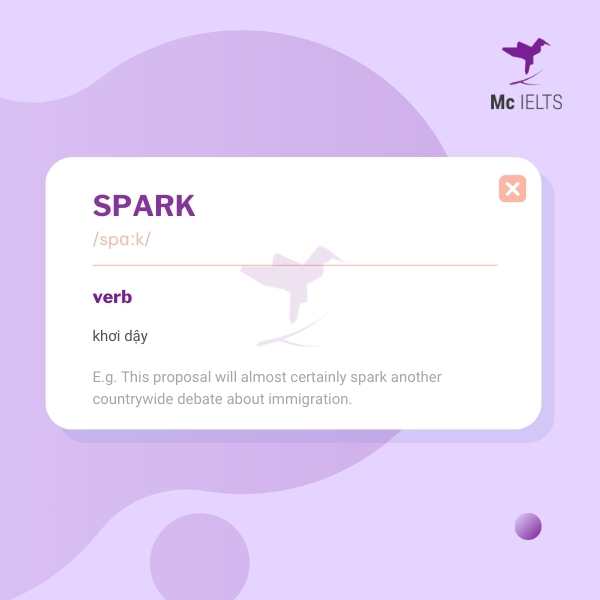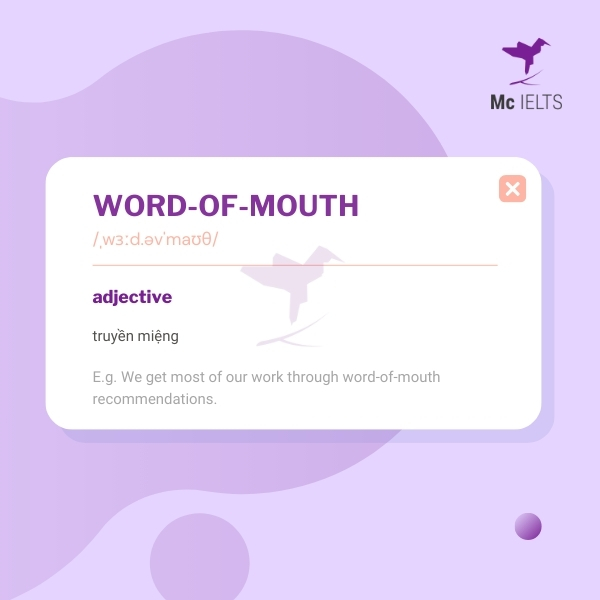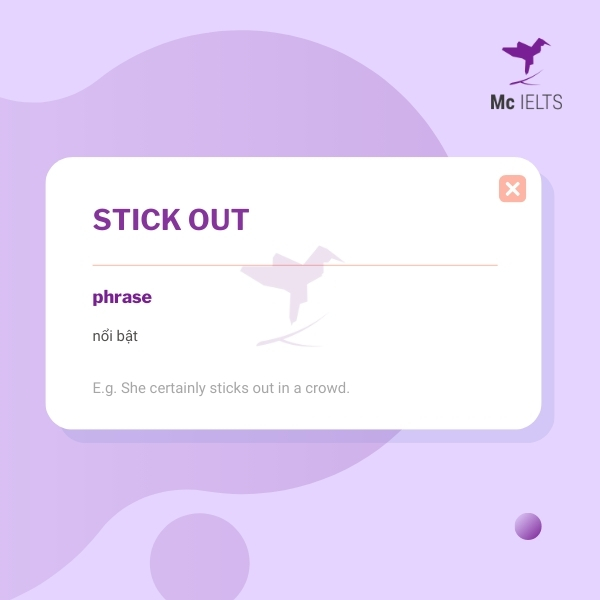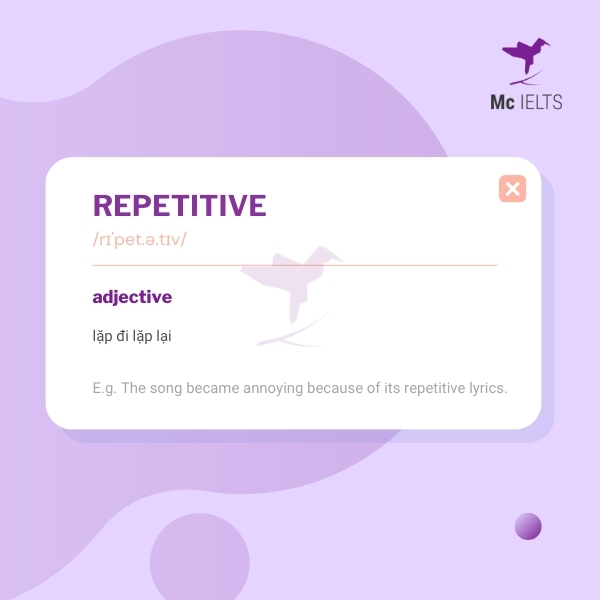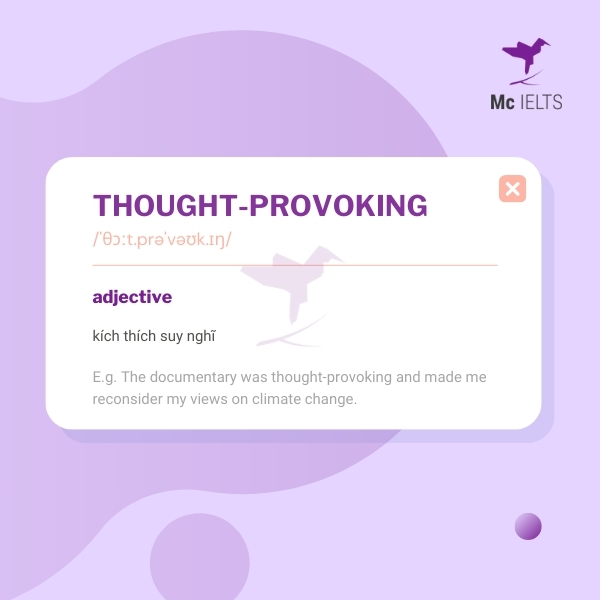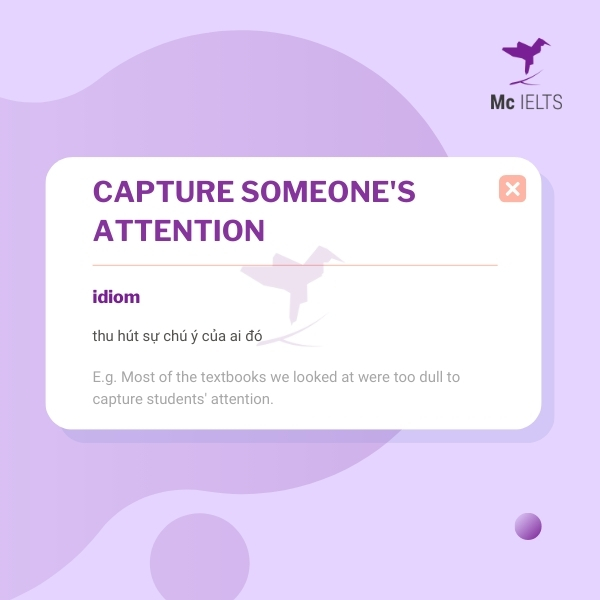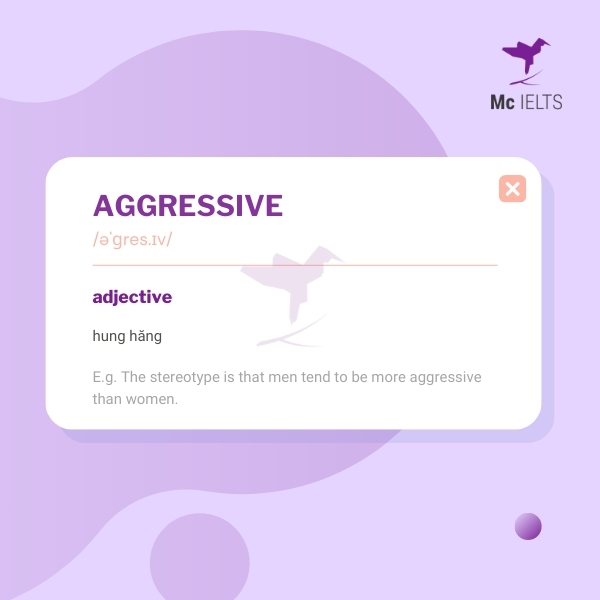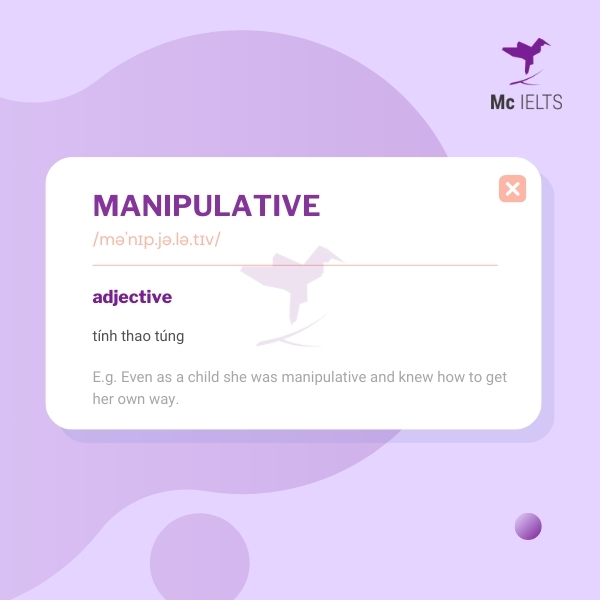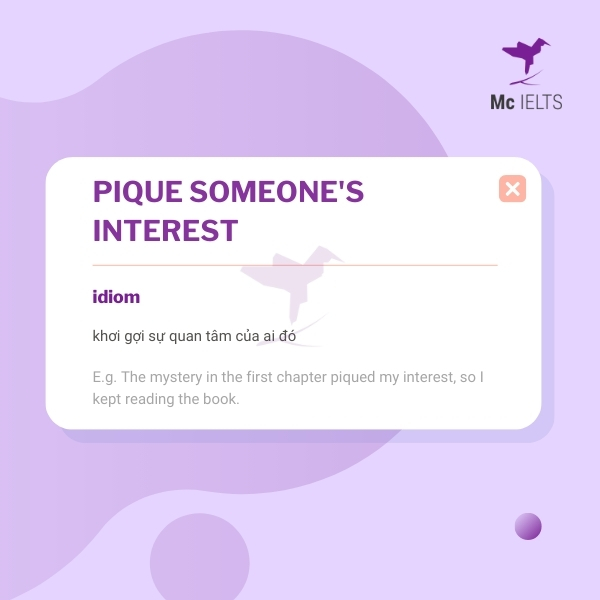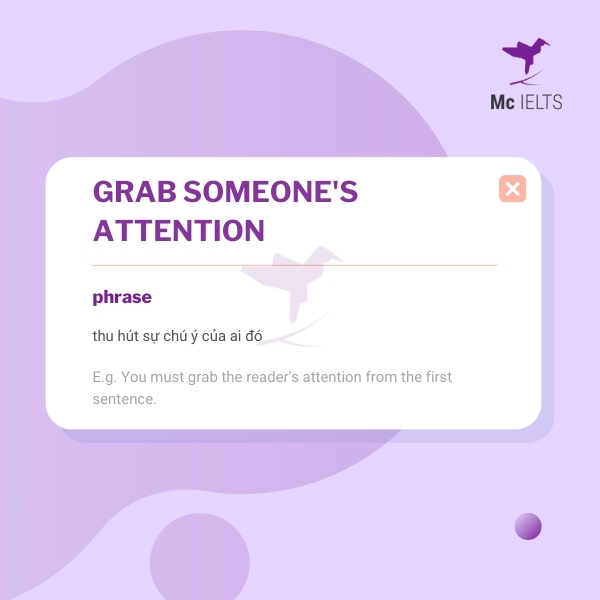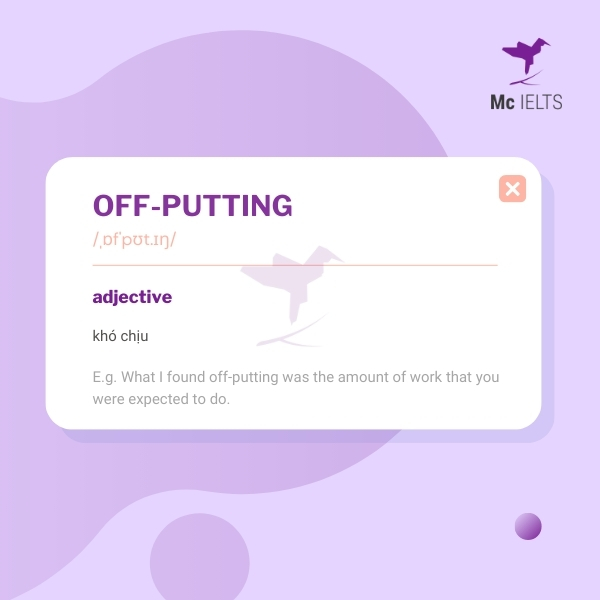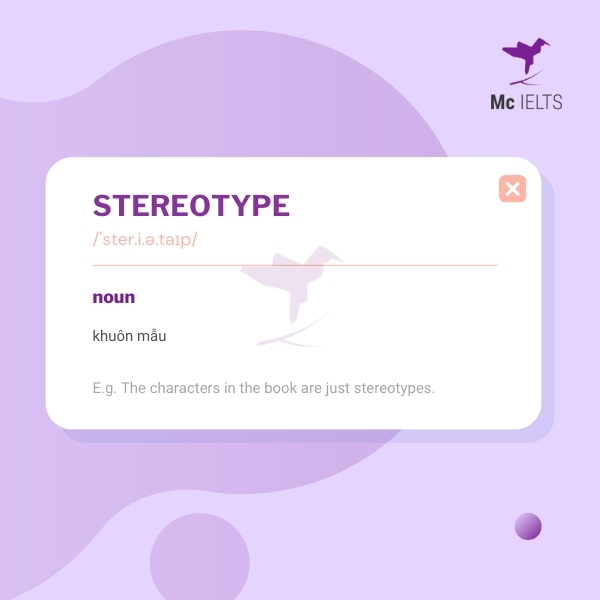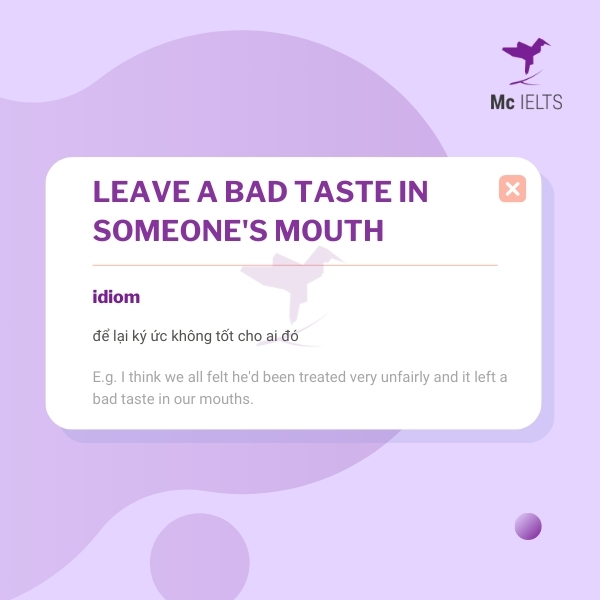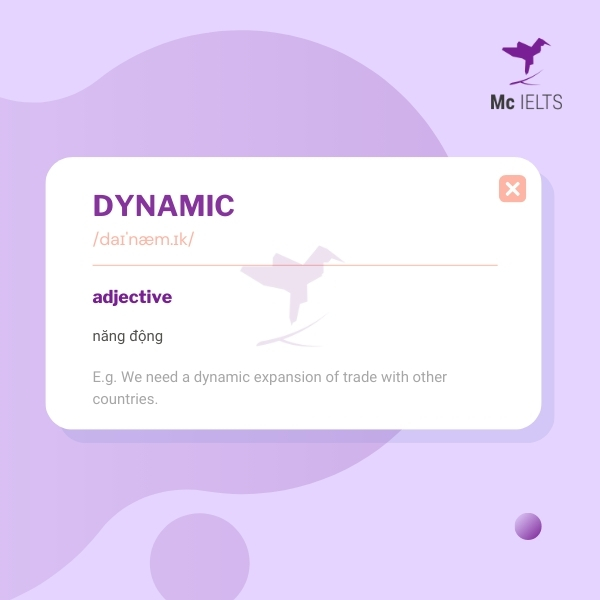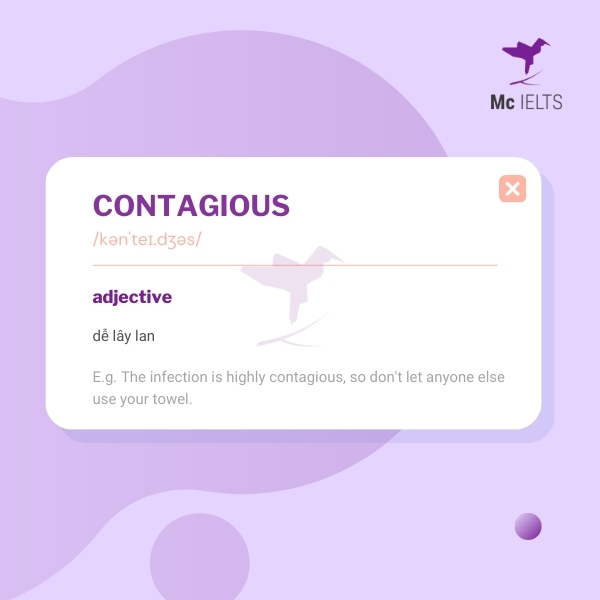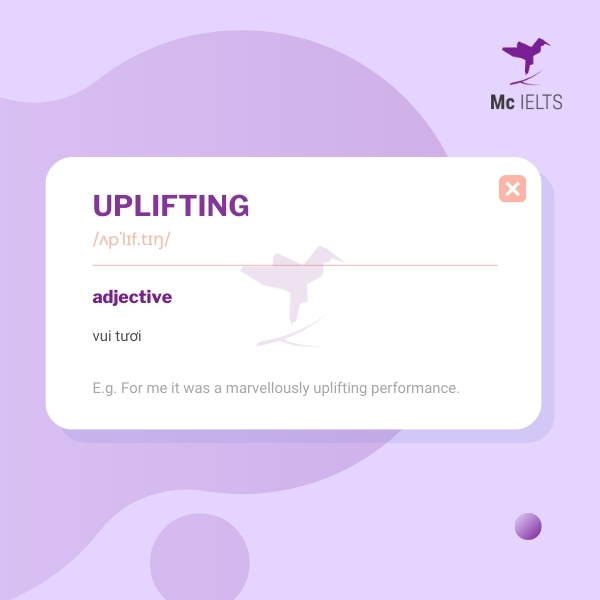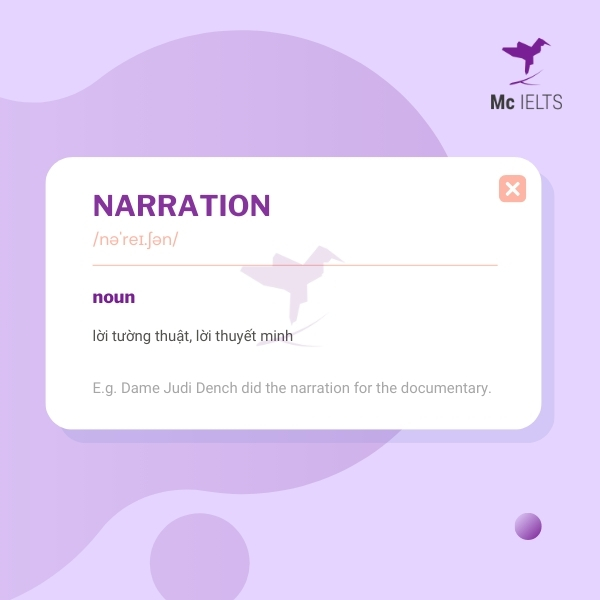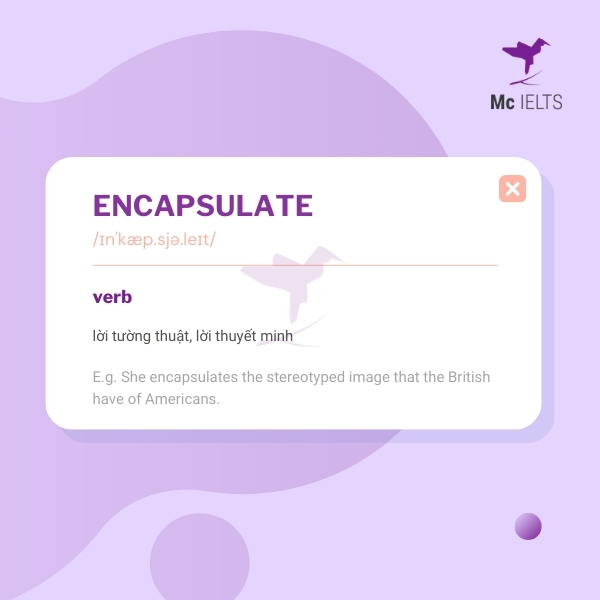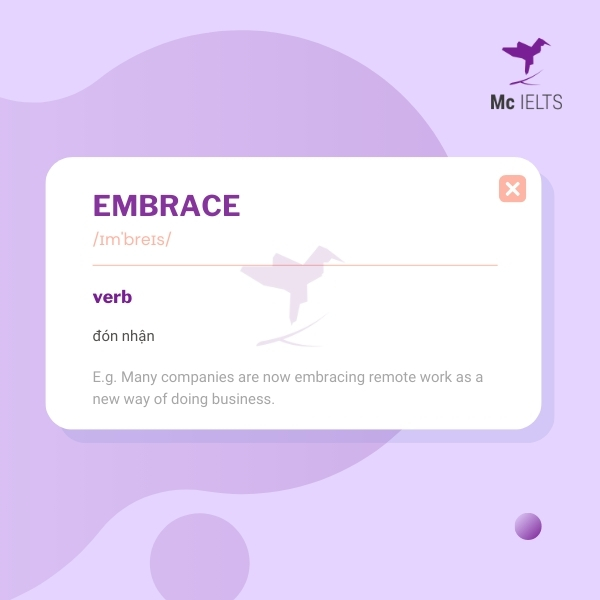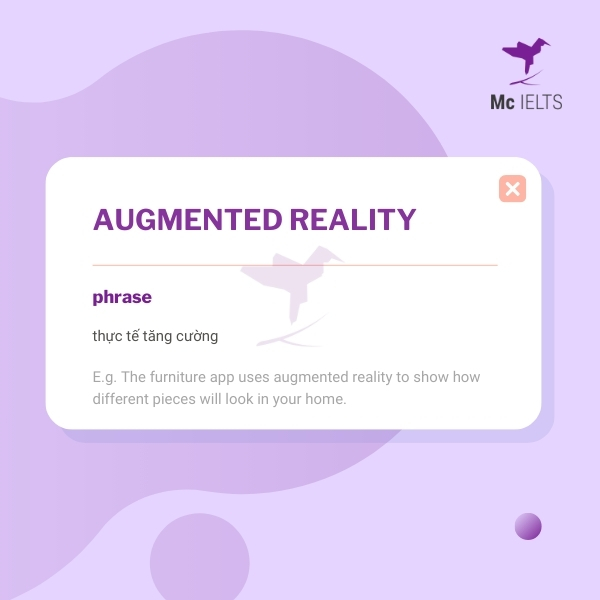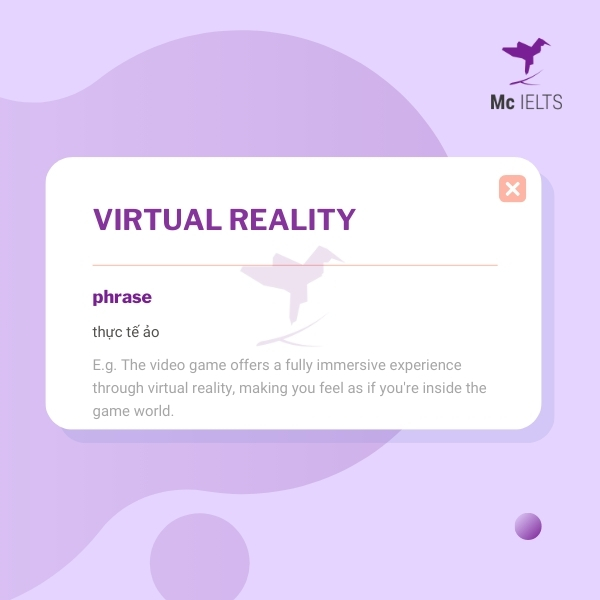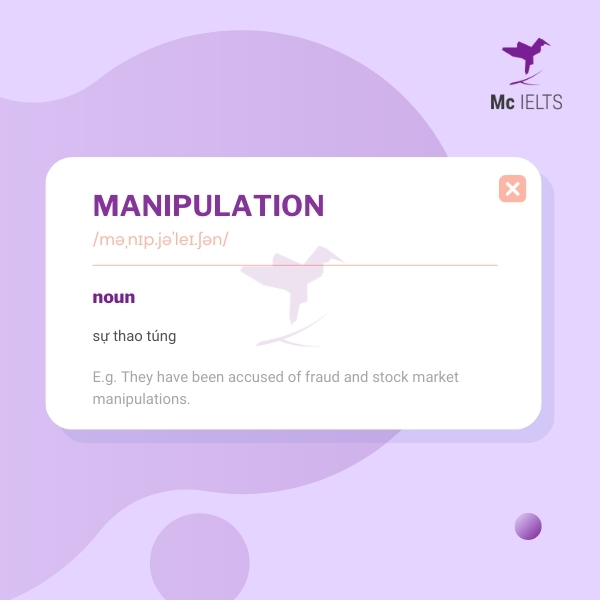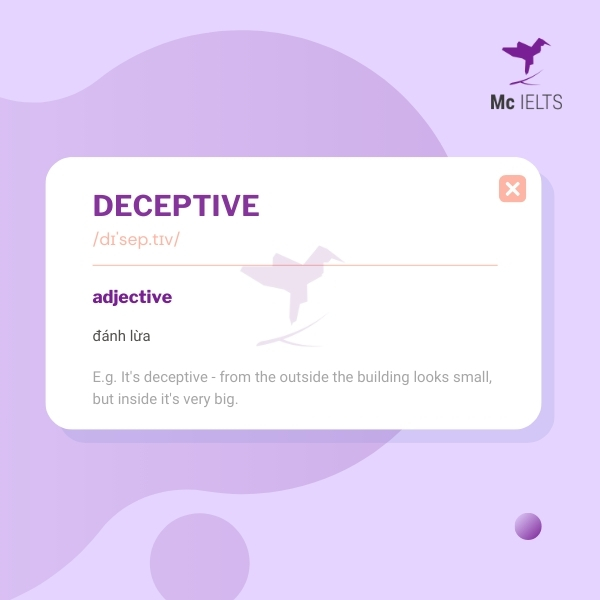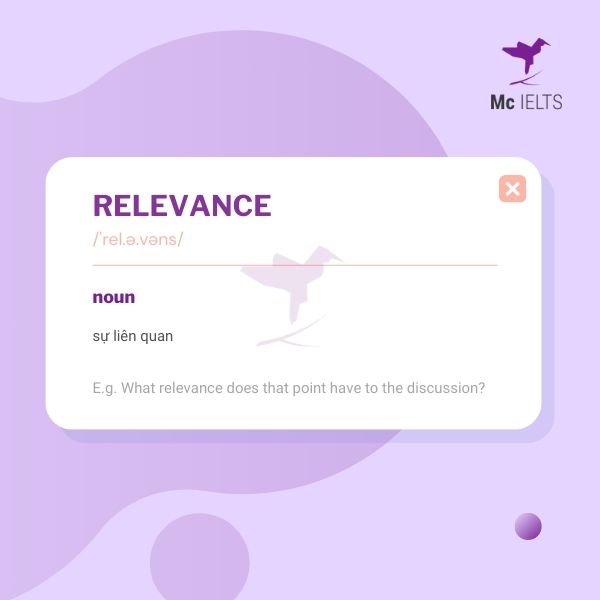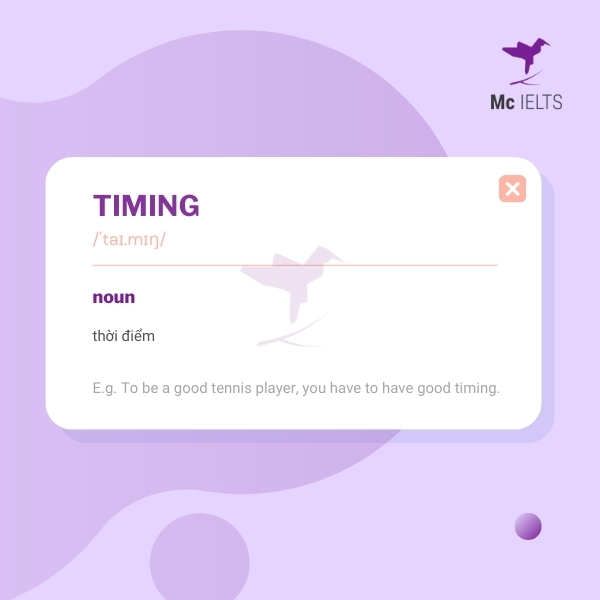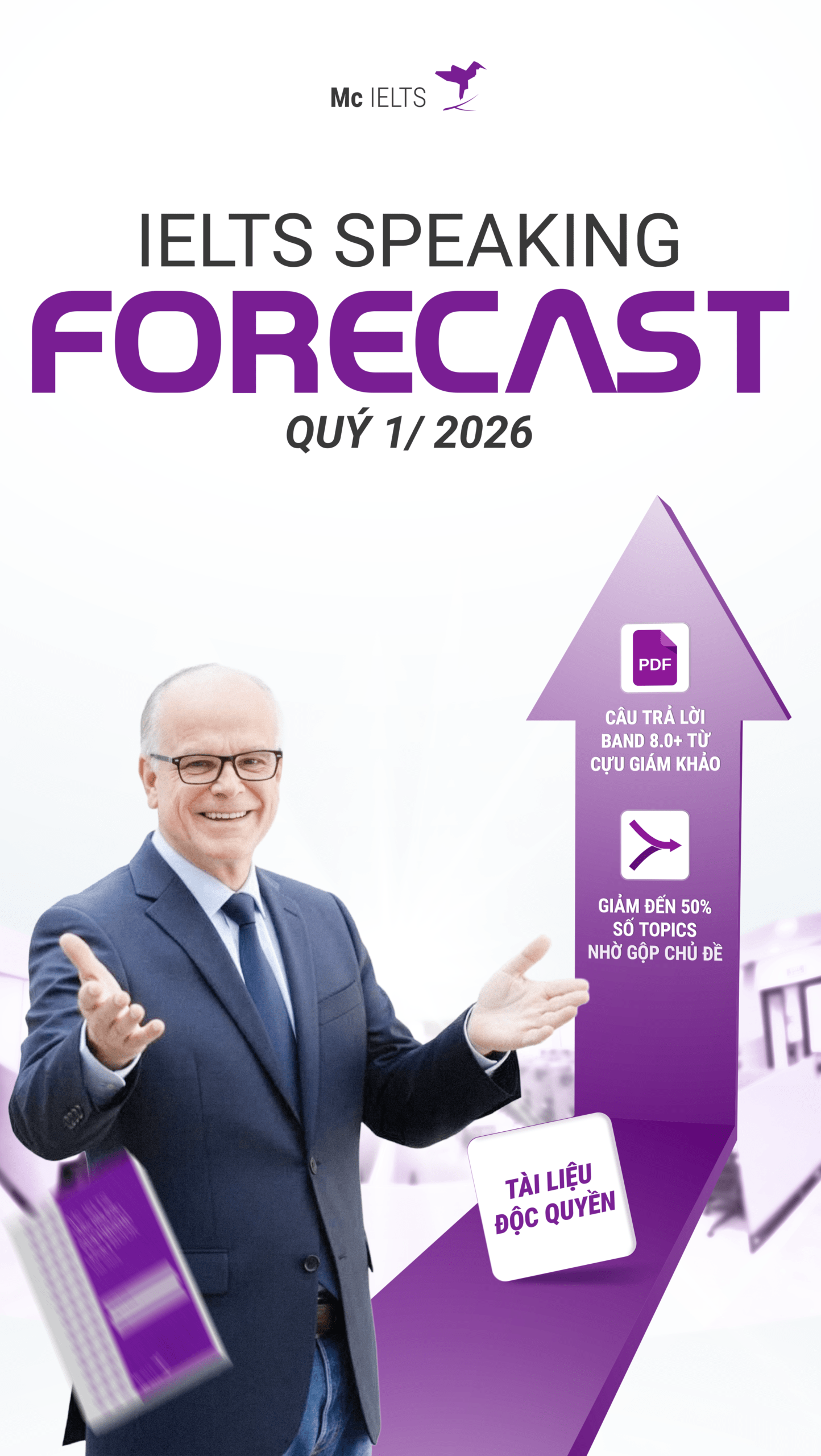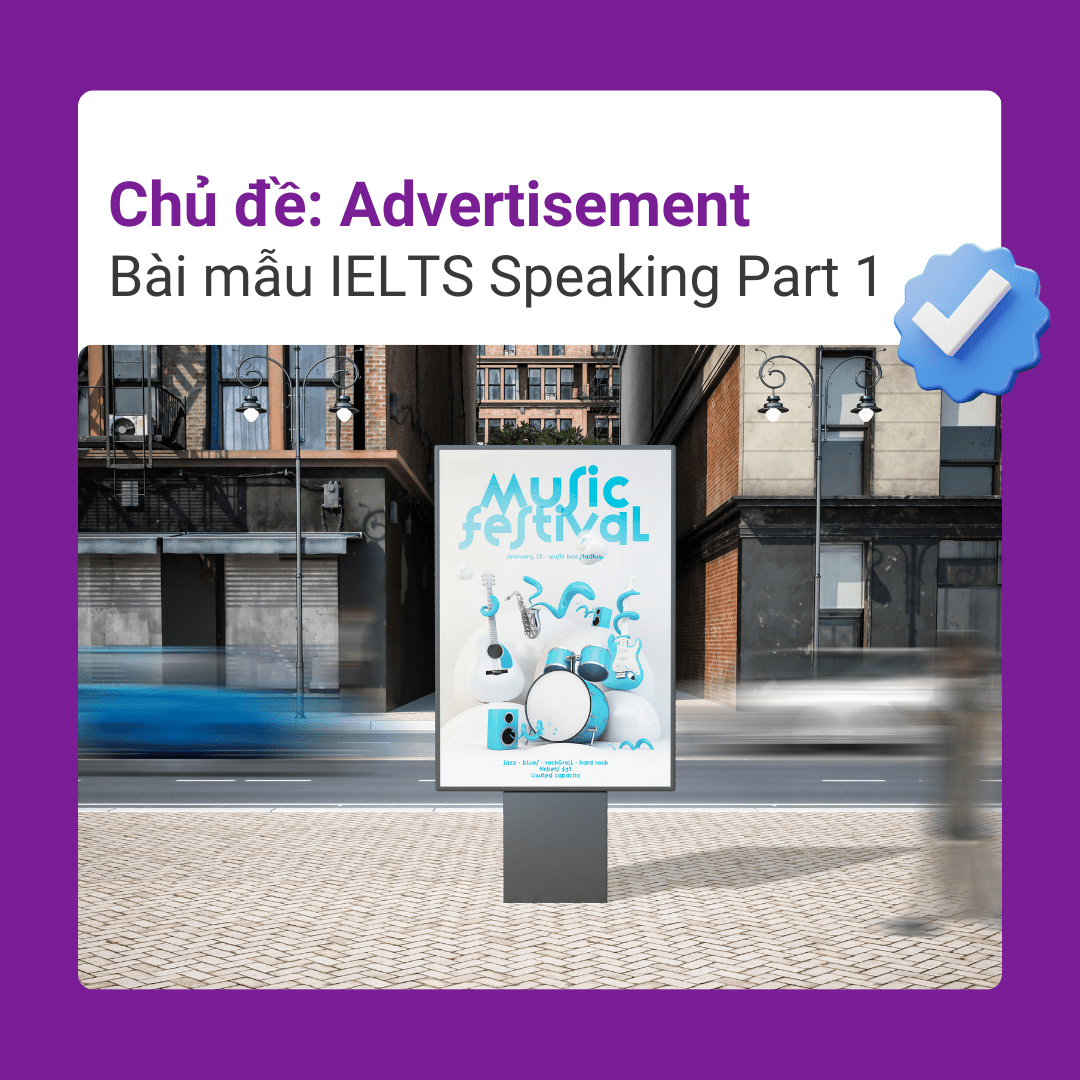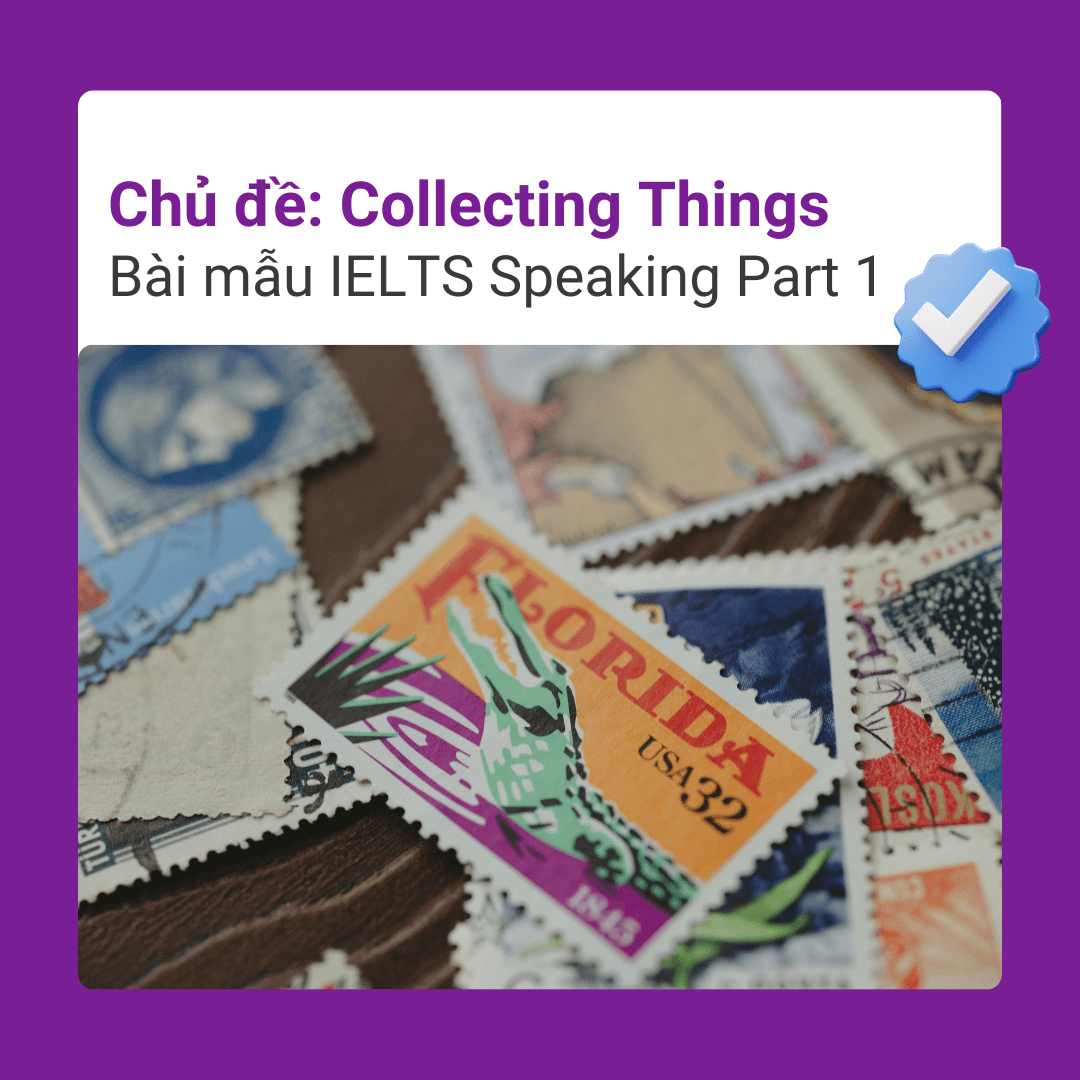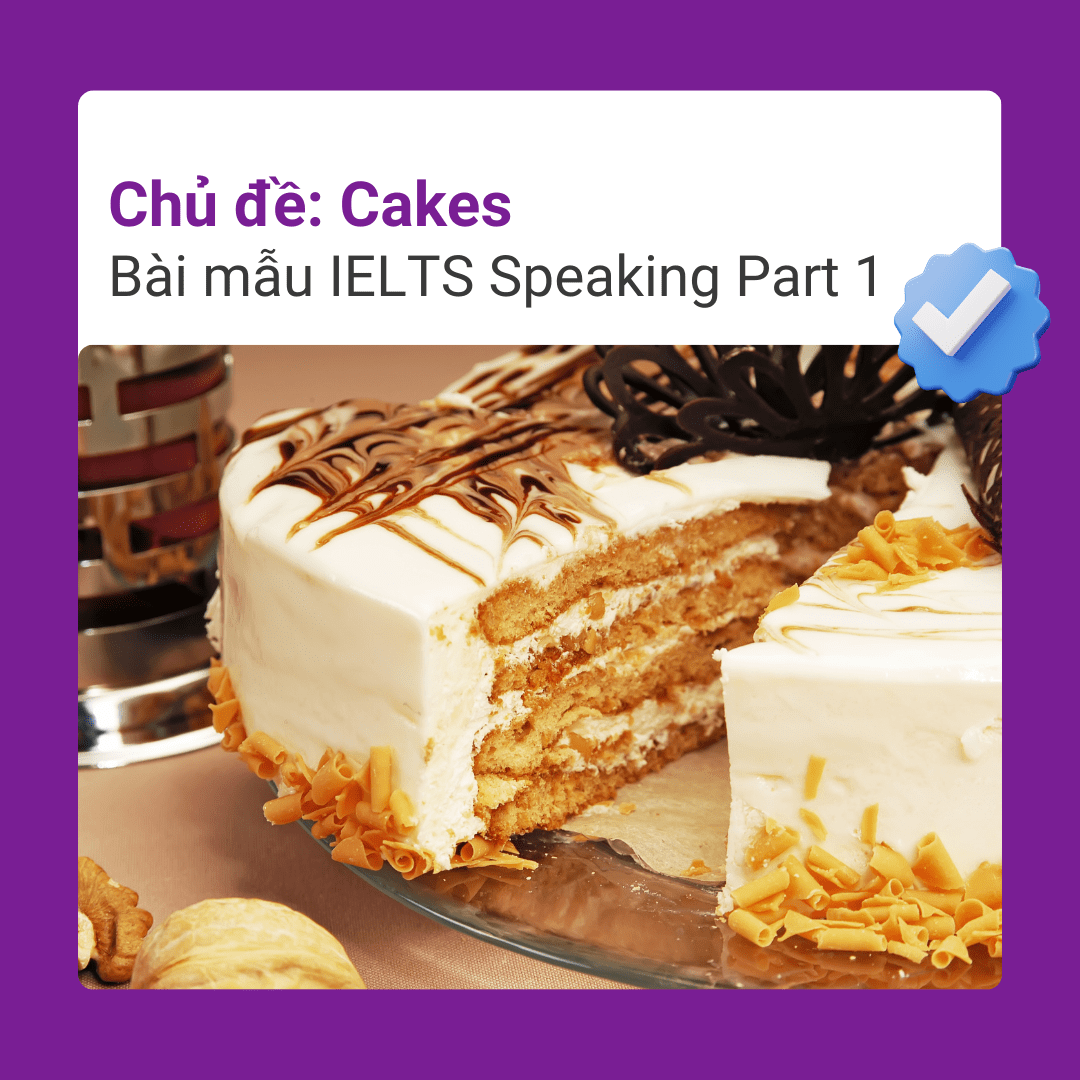Advertisement Speaking Part 1, 2, 3 | Bài mẫu + Từ vựng
 28/09/2024
28/09/2024
 Tác giả : Mc IELTS
Tác giả : Mc IELTS
Bạn đã bao giờ tự hỏi làm thế nào để nói về quảng cáo (advertising) một cách ấn tượng trong bài thi IELTS Speaking? Làm sao để miêu tả một quảng cáo mà bạn yêu thích hoặc thảo luận về vai trò của quảng cáo trong cuộc sống hàng ngày một cách mạch lạc và thu hút? Nếu bạn đang tìm kiếm những câu trả lời mẫu và từ vựng hữu ích để chinh phục chủ đề Advertisement IELTS Speaking, bài viết này chính là điều bạn cần. Hãy cùng Trung tâm Anh ngữ Mc IELTS khám phá và chuẩn bị thật kỹ để sẵn sàng ghi điểm cao trong kỳ thi IELTS!
| Key takeaway |
Câu hỏi topic Advertising IELTS Speaking Part 1:
Câu hỏi topic Advertisement IELTS Speaking Part 2:
Câu hỏi topic Advertising IELTS Speaking Part 3:
Những từ vựng và mẫu câu thông dụng trong chủ đề IELTS Speaking about Advertisement. |
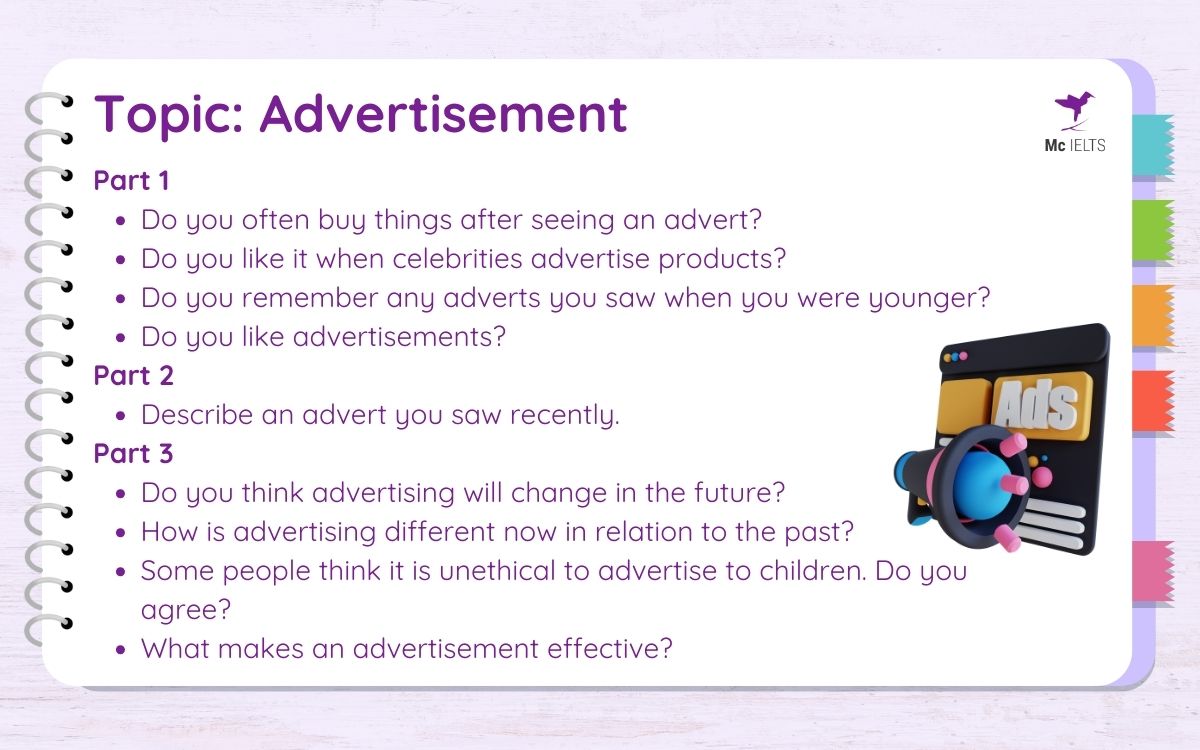
Một số câu hỏi IELTS Speaking Questions about Advertisement
Bài mẫu topic Advertisement IELTS Speaking Part 1
Khi đối mặt với chủ đề quảng cáo trong IELTS Speaking Part 1, bạn có thể sẽ gặp những câu hỏi xoay quanh trải nghiệm cá nhân hoặc quan điểm của mình về các quảng cáo thường thấy. Làm sao để trả lời một cách tự nhiên và thú vị, mà vẫn thể hiện được sự hiểu biết của mình? Advertisement IELTS Speaking Part 1 Sample answer dưới đây sẽ giúp bạn nắm bắt cách diễn đạt thông minh và sáng tạo, giúp bạn ghi điểm ngay từ những câu hỏi đầu tiên. Hãy cùng khám phá và vận dụng ngay trong quá trình luyện IELTS Speaking để tự tin hơn trong phần thi này nhé!
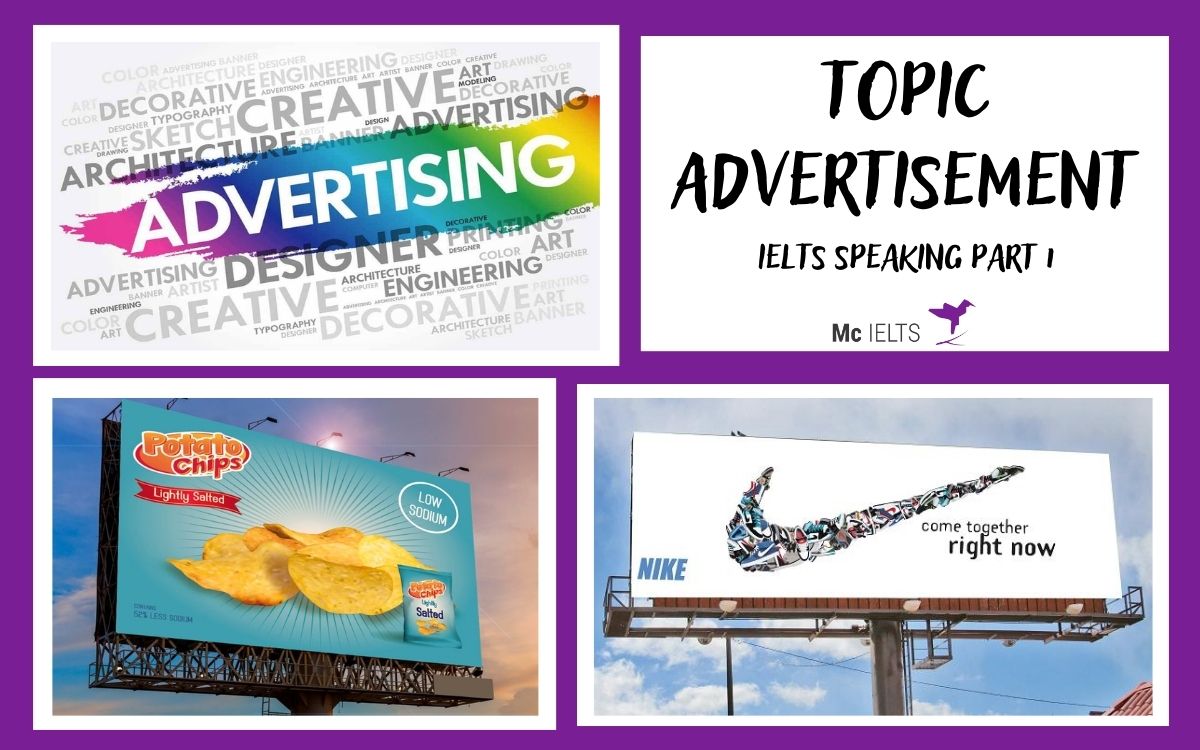
Model answer chủ đề Advertising IELTS Speaking Part 1
Do you often buy things after seeing an advert?
Not really. While advertisements can catch my attention, I don’t usually make purchases solely based on them. I prefer to do my own research and read reviews before deciding to buy something. Ads might spark initial interest, but I rely more on word-of-mouth and personal preferences.
Từ vựng:
Do you like it when celebrities advertise products?
It depends on the celebrity and the product. If the celebrity genuinely aligns with the product or cause, it can make the advertisement more authentic and convincing. However, if it feels like they’re just doing it for a paycheck, it can come off as insincere. I appreciate it more when the endorsement feels natural and believable.
Từ vựng:
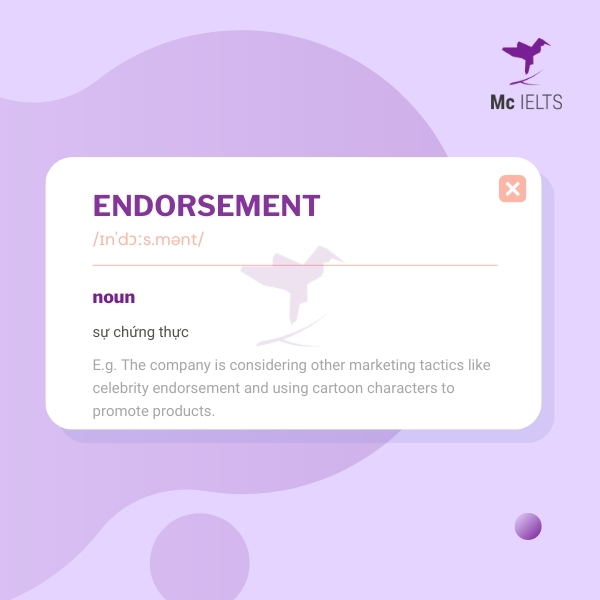
Do you remember any adverts you saw when you were younger?
Yes, I remember a few, especially those catchy jingles or funny commercials that aired on TV. One that sticks out is an old soda commercial with a memorable theme song that everyone used to sing. These kinds of ads had a way of embedding themselves in your memory, probably because they were simple, entertaining, and repetitive.
Từ vựng:
Do you like advertisements?
I have mixed feelings about advertisements. Some are clever and engaging, and I appreciate the creativity that goes into them. However, others can be repetitive and intrusive, especially when they interrupt something I’m enjoying, like a movie or a video. Overall, it’s about balance – I enjoy ads that are well-crafted and relevant, but not when they become overwhelming.
Từ vựng:
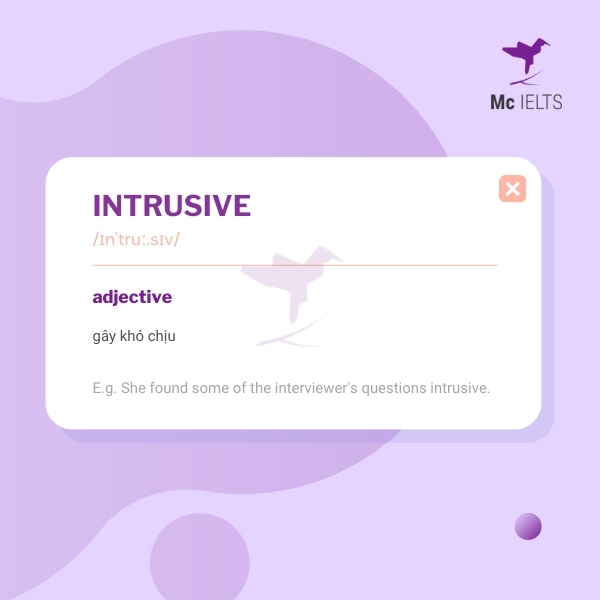
Where can you see advertisements?
Advertisements are everywhere these days. You can see them on TV, online, on social media, and even while walking down the street on billboards. They’re also common in public transport, like buses and trains. It’s almost impossible to go a day without encountering some form of advertising.
Từ vựng:
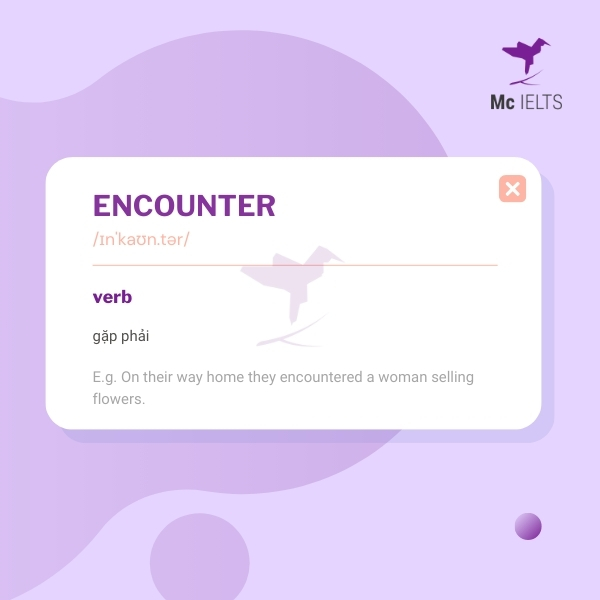
What kind of advertising do you like?
I like advertising that’s creative and thought-provoking. For example, ads that tell a story or have a surprising twist tend to capture my attention. I also appreciate ads that are informative and help me learn something new about a product or service. Humorous ads are great too – they make the experience enjoyable rather than just a sales pitch.
Từ vựng:
What kinds of advertisements do you dislike?
I dislike ads that are overly aggressive or intrusive. Pop-up ads online can be particularly annoying, especially when they disrupt what I’m doing. I’m also not a fan of ads that use misleading information or play on people’s insecurities to sell products. These tactics feel manipulative and leave a negative impression.
Từ vựng:
Do you share advertisements with others?
Occasionally, I do, but only if the ad is really interesting or funny. If I come across an ad that I think a friend would enjoy or find useful, I’ll share it with them. However, it’s not something I do often. The ad has to be exceptional in some way to make me want to pass it on.
Từ vựng:
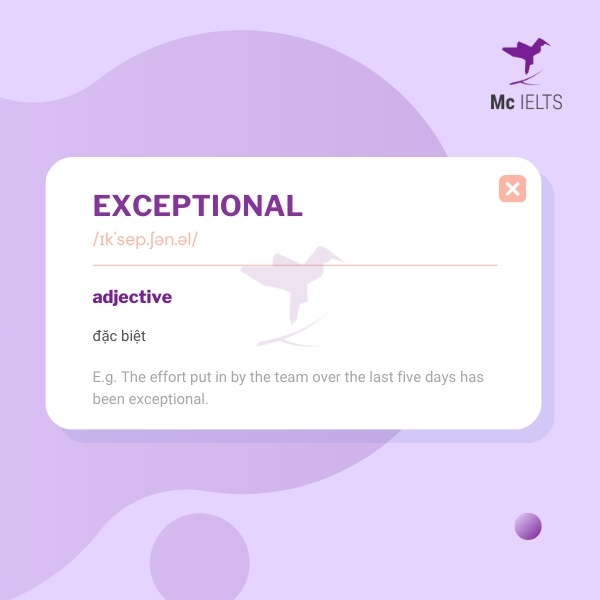
Do you want to work in advertising in the future?
I’ve never really thought about it, but I do find the creative aspect of advertising intriguing. It would be interesting to work on campaigns that require innovation and strategic thinking. However, I’m not sure if it’s the right fit for me long-term. I admire those who can blend creativity and business acumen in this field, though.
Từ vựng:
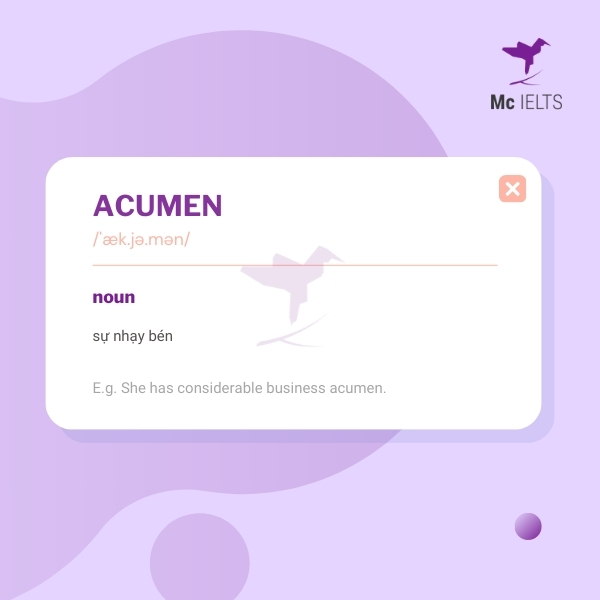
Do you watch advertisements from the beginning to the end?
Only if the ad is really captivating. Most of the time, I tend to skip ads when I can, especially online. But if an ad starts off strong and piques my interest, I’ll watch it through to see where it goes. The key is whether it can grab my attention in the first few seconds.
Từ vựng:
Why do you think there are so many advertisements now?
There are so many advertisements now because businesses are constantly competing for our attention in a crowded market. With the rise of digital media, it’s easier and cheaper to reach large audiences, so companies are taking full advantage of that. Additionally, advertising has become more targeted, so we’re seeing more ads that are tailored to our interests and behaviors.
Từ vựng:
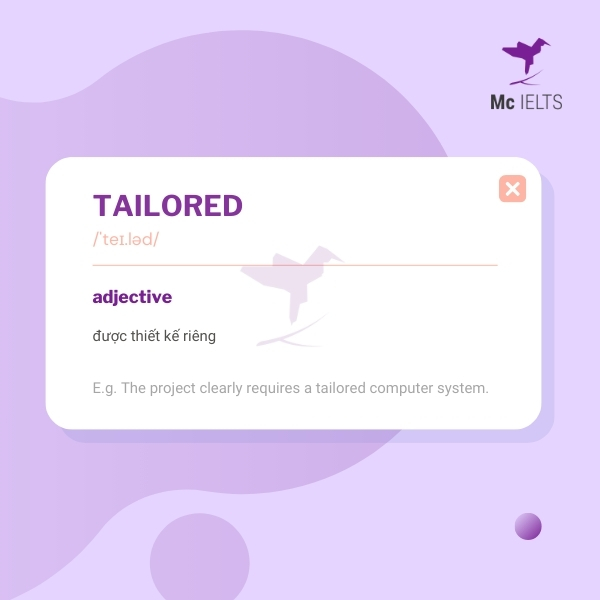
Have you ever bought something because of its advertisement?
Yes, I have, but only a few times. There were instances where an ad introduced me to a product I wasn’t aware of, and after doing some research, I decided to buy it. Ads can be influential, especially when they highlight a product’s unique features or address a specific need I have. However, I always try to verify the claims before making a purchase.
Từ vựng:
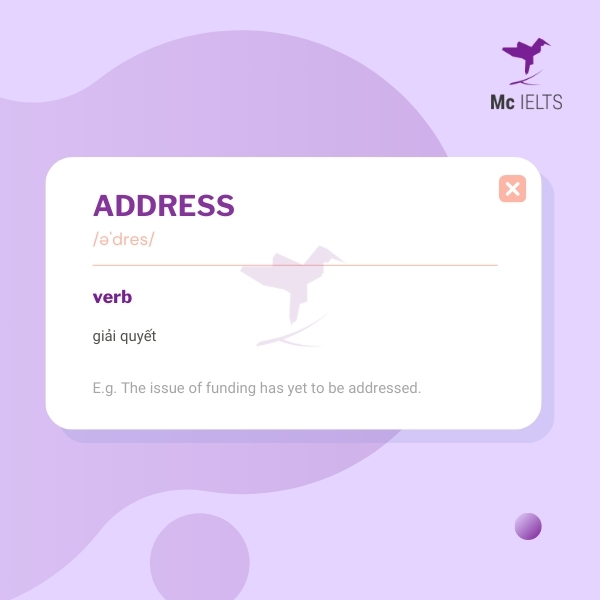
Do you see a lot of advertising on trains or other transport?
Yes, there’s a lot of advertising on public transport. Trains, buses, and even stations are filled with ads for everything from movies to new tech products. It’s a smart way to reach people since they’re often a captive audience during their commute. Sometimes, these ads can be quite innovative, using the space creatively to catch your eye.
Từ vựng:
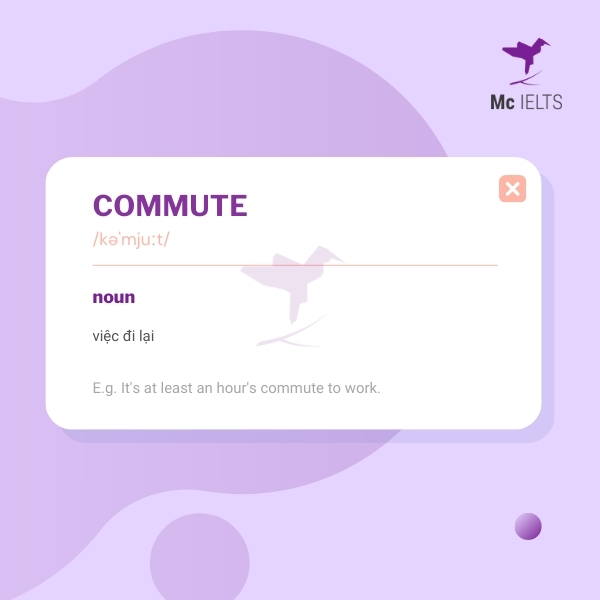
Are you interested in watching TV advertisements or internet advertisements?
I’m more interested in internet advertisements than TV ads. Online ads are often more targeted to my interests, so they’re more relevant to me. Plus, I like the interactive nature of some online ads, which can be more engaging. TV ads, on the other hand, feel more generic and easy to tune out.
Từ vựng:
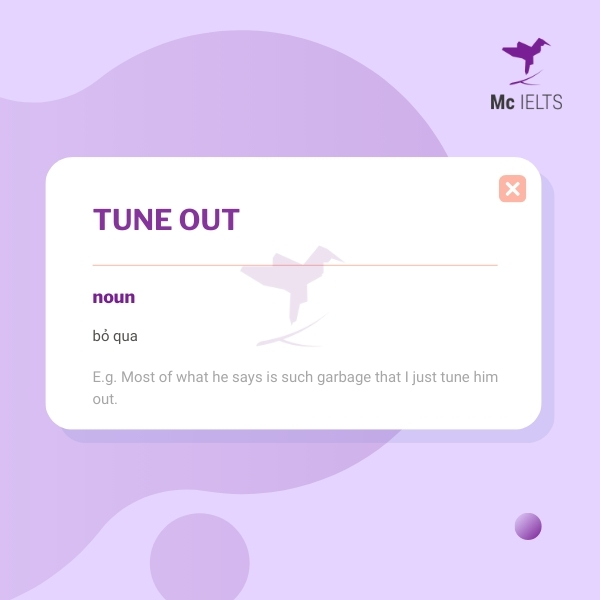
Have you ever seen advertisements/commercials that you really didn’t like? (Why?)
Yes, I’ve seen ads that I didn’t like, mainly because they were misleading or annoying. Some commercials try too hard to be clever and end up being confusing or off-putting. Others might use stereotypes or inappropriate humor, which can be quite offensive. When an ad leaves a bad taste in my mouth, it makes me less likely to support the brand.
Từ vựng:
Is there an advertisement that made an impression on you when you were a child?
Yes, there was a cereal commercial that made a big impression on me as a child. It had a catchy jingle and a fun animated character that I loved. I remember singing the jingle all the time and begging my parents to buy that cereal. It’s funny how some ads stick with you, even years later.
Từ vựng:
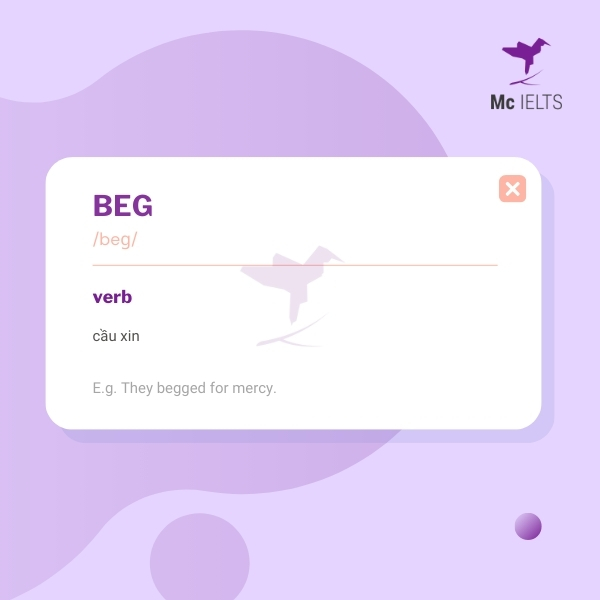
Do you often remember advertisements/commercials that you’ve seen? (Why/Why not?)
I tend to remember ads that are either very creative or particularly relevant to my interests. If an ad tells a compelling story or has a memorable slogan, it sticks with me. On the other hand, generic or boring ads are easily forgotten. The most memorable ads are those that connect emotionally or offer something truly unique.
Từ vựng:
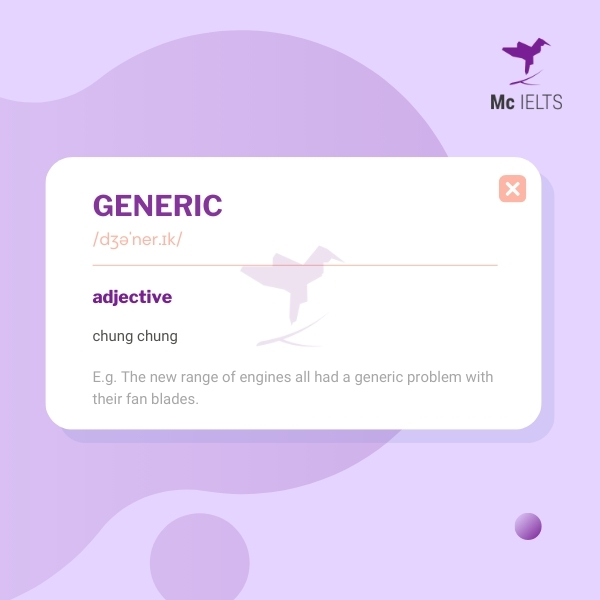
Would you like to be in advertisements/commercials one day? (What kind?/Why/Why not?)
I’m not sure if I’d like to be in advertisements, but if I were, I’d want it to be for something I genuinely believe in. Maybe an ad that promotes a good cause or a product that aligns with my values. Being part of something positive and impactful would make the experience worthwhile. However, I’m not actively seeking out such opportunities.
Từ vựng:
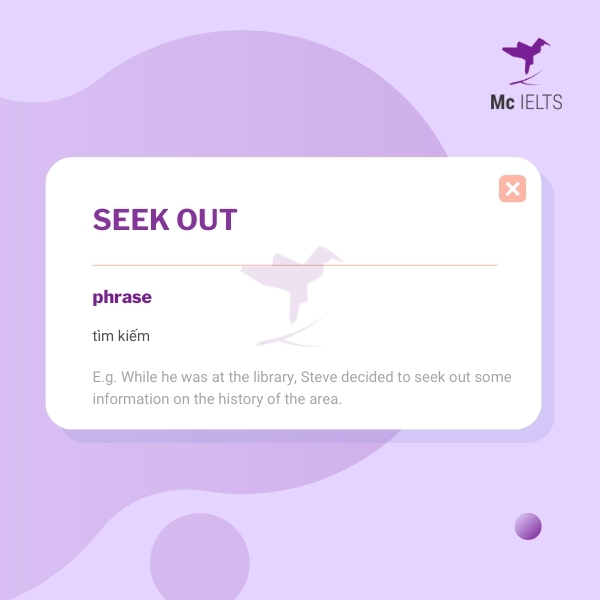
What do you usually do when an advertisement/a commercial comes on TV or the Internet? (Why/Why not?)
When an ad comes on, I usually skip it if I can, especially online. If I’m watching TV, I might use the time to grab a snack or check my phone. Ads can be disruptive, so I try to minimize the interruption. However, if an ad catches my interest, I’ll watch it through, but that’s pretty rare.
Từ vựng:
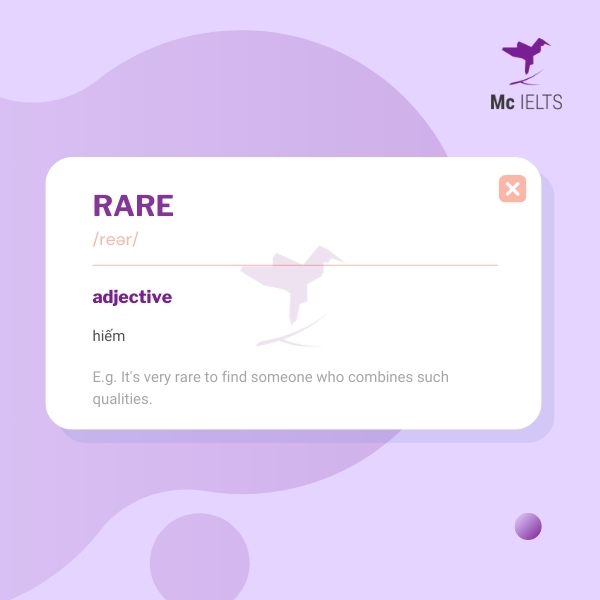
What do you think or understand the purpose of advertising?
The purpose of advertising is to inform, persuade, and remind consumers about products, services, or ideas. It’s a way for businesses to reach potential customers and influence their buying decisions. Advertising also helps create brand awareness and loyalty by keeping products in the public eye. Ultimately, it’s about driving sales and shaping consumer behavior.
Từ vựng:
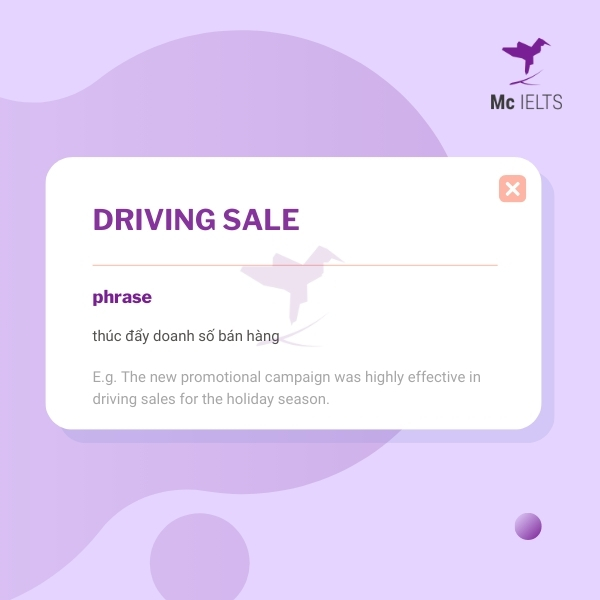
Bài mẫu topic Advertisement IELTS Speaking Part 2
Trong IELTS Speaking Part 2, khi bạn được yêu cầu nói về một quảng cáo mà bạn thấy ấn tượng, đây là cơ hội để thể hiện sự tinh tế và khả năng phân tích của mình. Thay vì chỉ đơn giản mô tả quảng cáo, làm sao để bạn có thể lồng ghép những suy nghĩ cá nhân, cảm nhận và cả những ảnh hưởng của nó đến bạn hoặc xã hội? Bài trả lời mẫu IELTS Speaking Questions about Advertisement dưới đây sẽ giúp bạn tiếp cận chủ đề này theo một cách mới mẻ, giúp bài nói của bạn trở nên thú vị và sâu sắc hơn. Hãy áp dụng thật tốt vào quá trình học IELTS Speaking Online để chuẩn bị sẵn sàng cho phần thi này nhé!
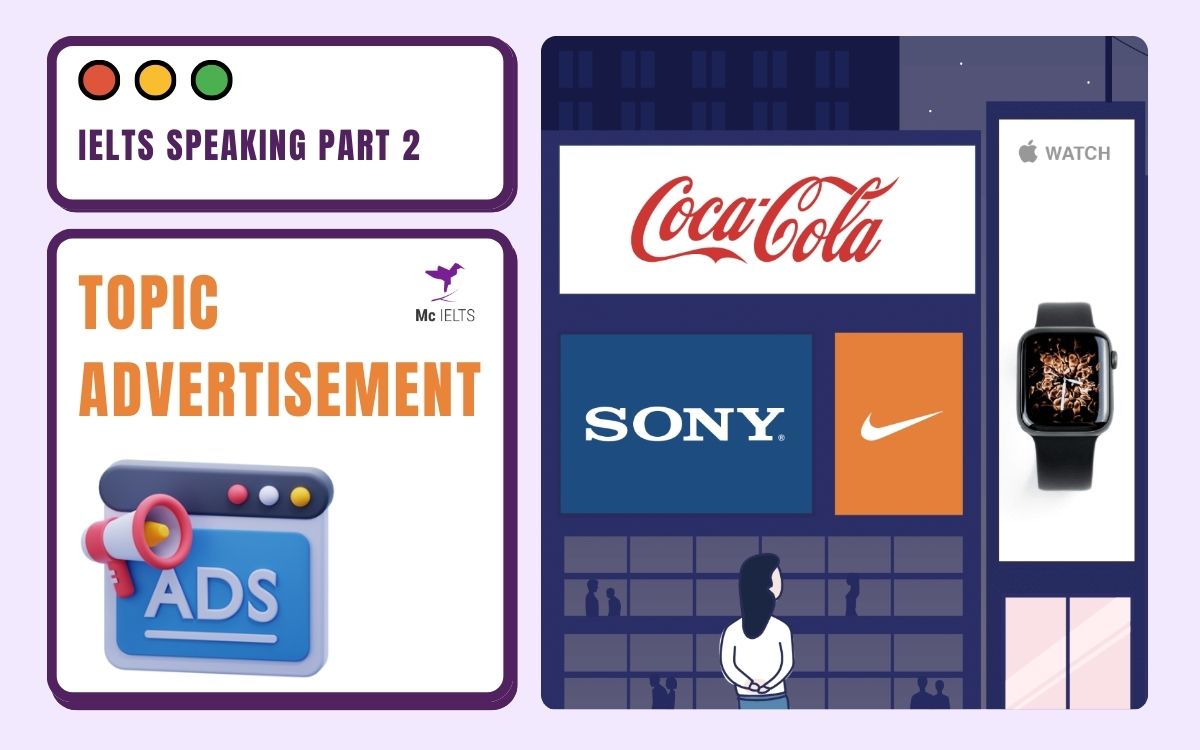
Sample answer chủ đề IELTS Speaking about Advertisement Part 2
Question: Describe an advert you saw recently.
I’d like to talk about an advert I saw recently that really caught my attention. It was an advertisement for a new electric car by VinFast, a prominent Vietnamese automotive brand. The ad was both visually striking and thought-provoking, leaving a lasting impression on me.
The advert began with stunning shots of the Vietnamese countryside, showing the car smoothly gliding through lush green fields and along coastal roads. The visuals were breathtaking, capturing the beauty of Vietnam’s natural landscapes. What struck me the most was how the car was presented not just as a mode of transportation, but as a way to connect with and preserve the environment. The message was clear: this is not just any car; it’s a step towards a more sustainable future.
Moreover, the ad featured a young, dynamic couple who seemed genuinely excited about their journey in this new electric car. They were shown driving through bustling city streets, serene rural areas, and even up into the mountains, highlighting the car’s versatility. Their sense of adventure was contagious, making the idea of owning this car seem not only practical but also exciting and environmentally responsible.
In addition, the background music was uplifting and modern, perfectly matching the visuals and the overall theme of innovation and progress. The narration emphasized the car’s cutting-edge technology, its eco-friendly design, and its role in reducing carbon emissions. The tagline, “Drive the Change,” resonated with me, encapsulating the ad’s core message of embracing a cleaner, greener future.
This advert stood out to me because it wasn’t just selling a car; it was selling an idea—a vision of a future where technology and nature coexist harmoniously. It made me seriously consider the impact of my choices on the environment and left me with a positive impression of the brand.
Từ vựng:
Bài mẫu topic Advertisement IELTS Speaking Part 3
Trong IELTS Speaking Part 3, bạn sẽ được yêu cầu thảo luận về những khía cạnh sâu hơn của chủ đề, chẳng hạn như tác động của quảng cáo đến xã hội, tâm lý người tiêu dùng, hay sự phát triển của ngành quảng cáo trong thời đại số. Đây là lúc bạn cần thể hiện khả năng phân tích và lập luận sắc bén của mình. Làm sao để bạn có thể trình bày quan điểm một cách thuyết phục và cuốn hút? Những câu trả lời mẫu dưới đây sẽ giúp bạn khám phá cách tiếp cận chủ đề Advertising IELTS Speaking Part 3 một cách sáng tạo, từ đó giúp bạn tự tin đối diện với những câu hỏi khó trong phần thi. Hãy cùng áp dụng hiệu quả vào quá trình học ôn thi IELTS để chuẩn bị thật tốt nhé!
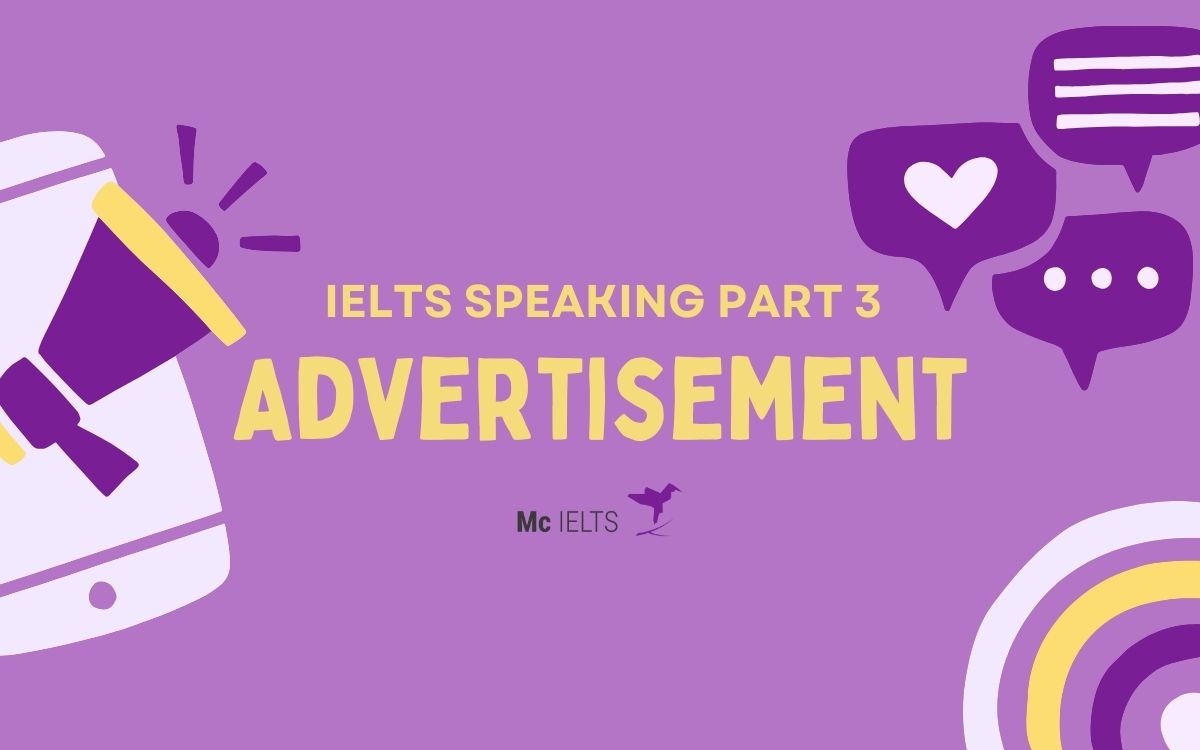
Model answer chủ đề Advertising IELTS Speaking Part 3
Do you think advertising will change in the future?
Oh, absolutely, advertising is bound to change as technology and consumer behavior evolve. We’re already seeing a shift towards more personalized and interactive ads, thanks to data analytics and AI. I think we’ll see even more immersive experiences, possibly with augmented reality or virtual reality. Also, as people become more aware of privacy issues, advertising might need to become more transparent and ethical to maintain trust.
Từ vựng:
How is advertising different now in relation to the past?
Advertising today is much more targeted and digital compared to the past. Back then, ads were mostly on TV, radio, and print, reaching a broad audience with a single message. Now, with the internet, ads can be tailored to individual interests and behaviors, often following you across different platforms. Plus, today’s ads are more interactive, encouraging people to engage rather than just passively watch.
Từ vựng:
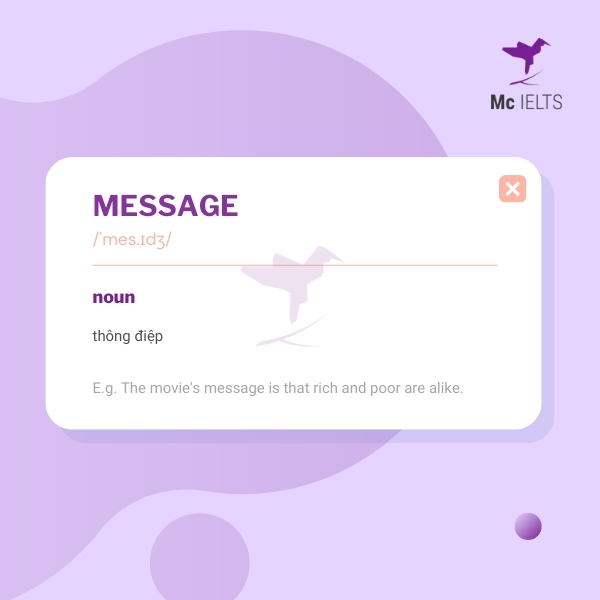
Some people think it is unethical to advertise to children. Do you agree?
I do think there are ethical concerns with advertising to children. Kids are more impressionable and might not fully understand the persuasive intent behind ads, making them more vulnerable to manipulation. This can lead to unhealthy habits or materialism at a young age. So, I believe there should be stricter regulations to protect children from overly aggressive or deceptive advertising.
Từ vựng:
What makes an advertisement effective?
An effective advertisement grabs attention and resonates emotionally with the audience. It should have a clear message and call to action that sticks in people’s minds, making them remember the brand or product. The best ads often tell a story or connect with viewers on a personal level. Creativity, relevance, and timing also play a huge role in whether an ad succeeds.
Từ vựng:
Should advertising aimed at kids be prohibited?
Prohibiting all advertising aimed at kids might be too extreme, but it should definitely be heavily regulated. Children need to be protected from misleading or overly persuasive ads, especially those promoting unhealthy foods or unrealistic body images. There could be stricter guidelines on what can be advertised to children and how it’s presented. Education around advertising literacy is also crucial to help kids understand the intent behind these messages.
Từ vựng:
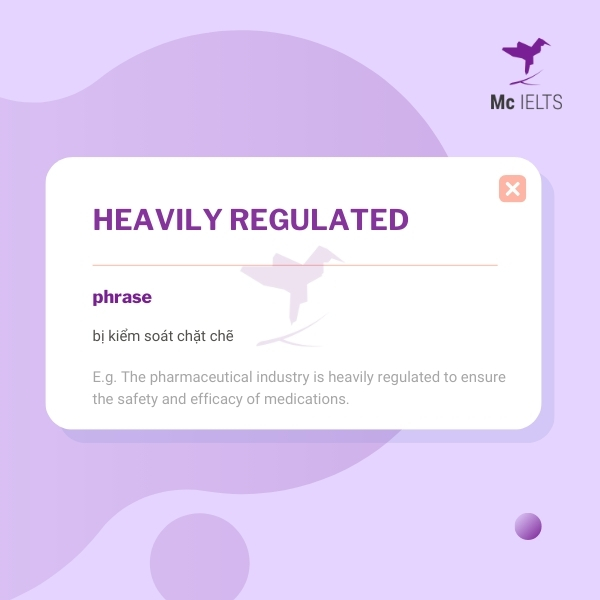
Do you think there should be controls on advertising?
Yes, there should definitely be controls on advertising to ensure it’s honest, ethical, and not harmful. Regulations can help prevent false claims, protect vulnerable groups like children, and ensure that ads don’t promote unhealthy behaviors. It’s also important to monitor the frequency and placement of ads to avoid overwhelming consumers. These controls help maintain a fair market and protect public interests.
Từ vựng:
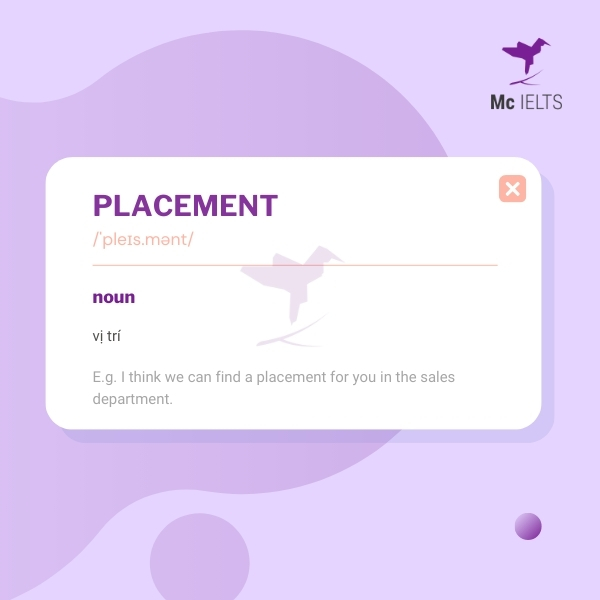
Do people usually buy stuff after watching advertisements?
Many people do, especially if the ad is persuasive and hits the right emotional notes. However, it also depends on how much they trust the brand and whether the product fits a need they already have. Sometimes, ads work more subtly, planting a seed that leads to a purchase later on. While not everyone buys immediately after seeing an ad, effective advertising definitely influences purchasing decisions.
Từ vựng:
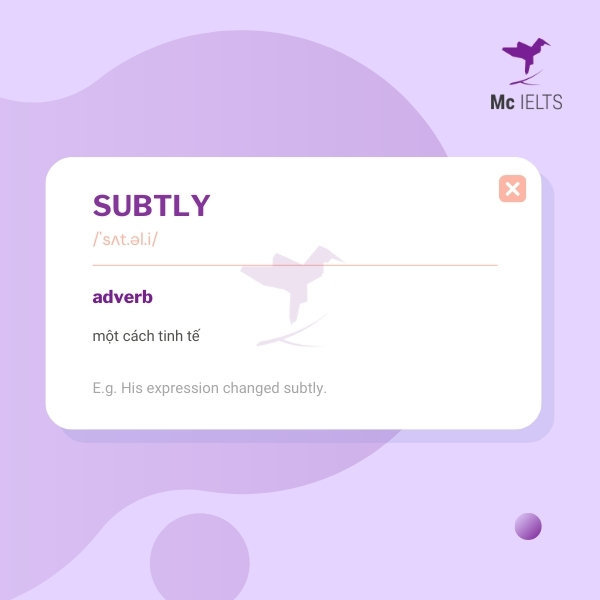
Do you think advertisements can influence people to buy things?
Absolutely, advertisements are designed to influence buying decisions. A well-crafted ad can make a product seem more appealing, even creating a sense of urgency or need where there wasn’t one before. This is especially true when ads tap into emotions or social trends. Over time, repeated exposure to ads can strongly influence consumer preferences and behavior.
Từ vựng:
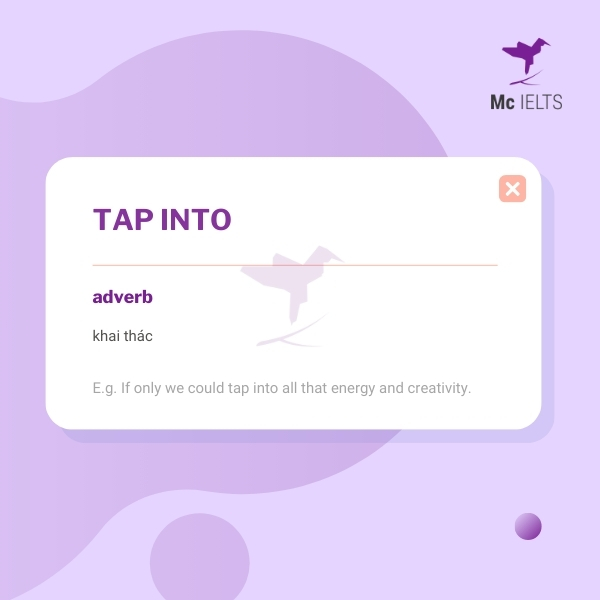
Do you think advertisements are a good or bad influence on children?
It’s a bit of both, really. On the positive side, ads can inform kids about new products or ideas, and sometimes even encourage positive behaviors, like healthy eating. However, they can also promote materialism, unhealthy food choices, or unrealistic standards of beauty. Overall, I’d say it depends on the content and how it’s presented, but there’s definitely a need for caution and regulation.
Từ vựng:
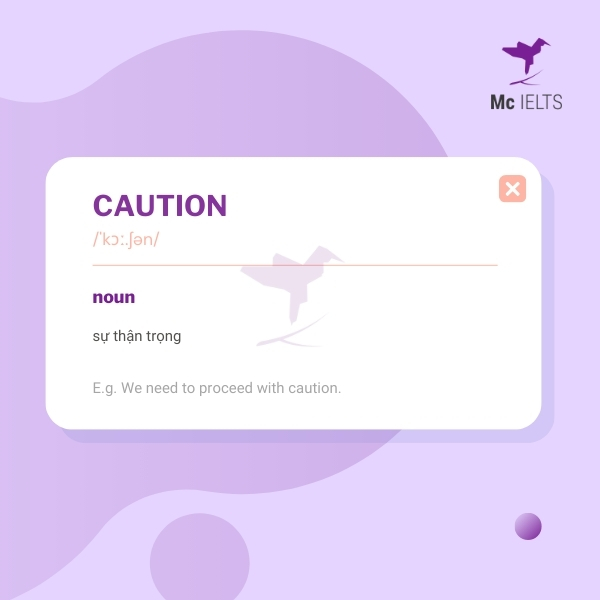
Do you think young and old people have the same attitude when it comes to advertising?
Not really, their attitudes often differ quite a bit. Younger people, especially those who’ve grown up with digital media, might be more skeptical of traditional ads and prefer more authentic content, like influencer recommendations. Older generations might be more used to traditional advertising formats and might not question them as much. However, both groups are becoming more aware of advertising tactics, though they respond differently based on their experiences and preferences.
Từ vựng:
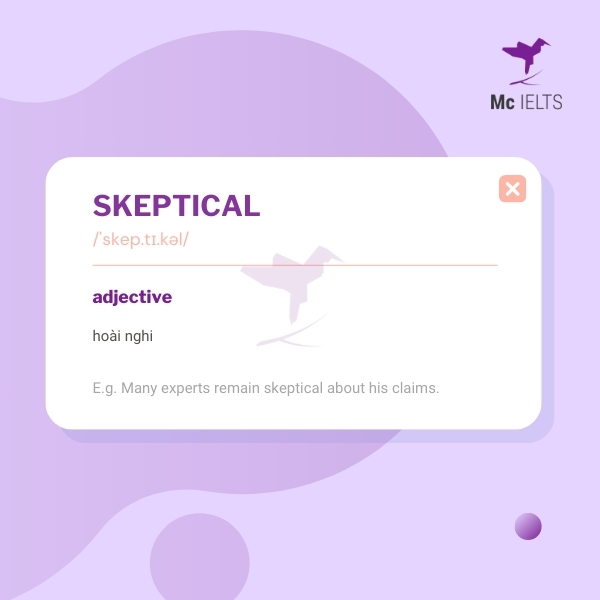
Vốn từ vựng thường dùng trong chủ đề Advertisement IELTS Speaking
Để tạo dấu ấn khi thảo luận về chủ đề IELTS Speaking about Advertisement, việc chọn đúng từ vựng có thể làm nên sự khác biệt. Vậy làm sao để bạn có thể miêu tả một chiến dịch quảng cáo thành công, phân tích tác động của quảng cáo đến hành vi người tiêu dùng, hay bàn luận về xu hướng quảng cáo hiện nay một cách ấn tượng? Dưới đây là những từ vựng không thể thiếu, giúp bạn diễn đạt ý tưởng mạch lạc và sáng tạo hơn trong bài thi. Hãy cùng vận dụng tốt trong quá trình ôn thi IELTS Online và chuẩn bị cho mình một kho từ vựng thật ấn tượng!
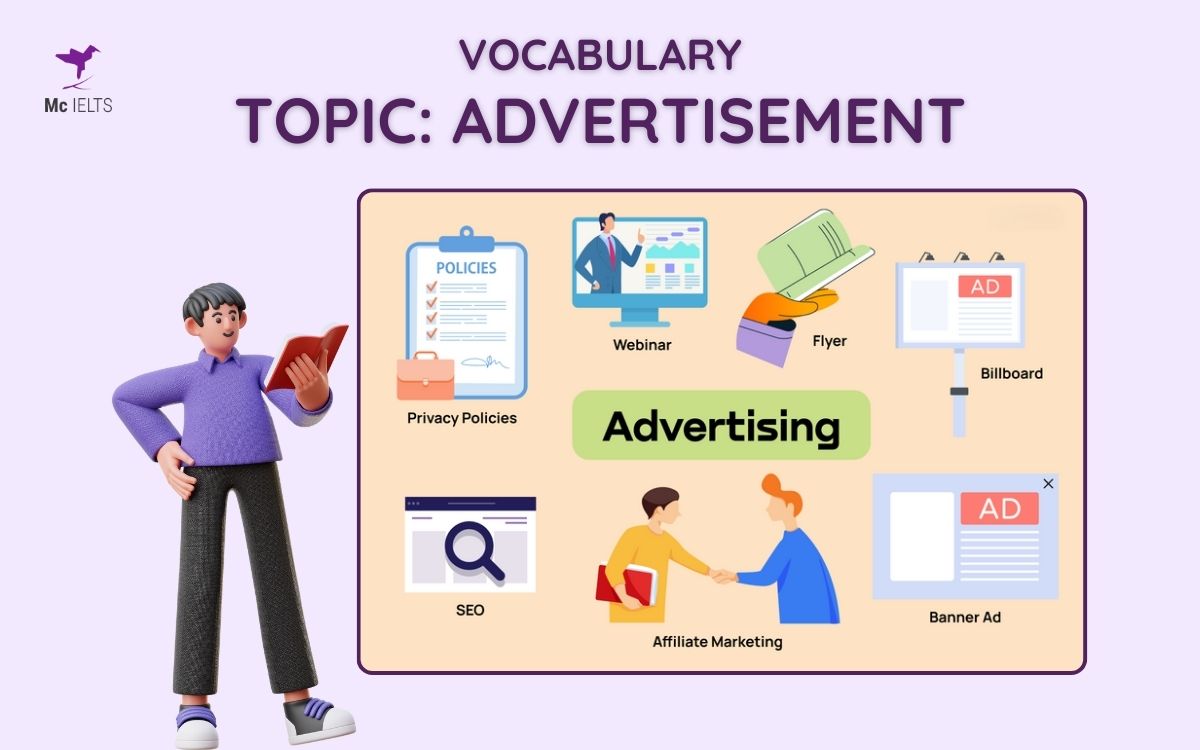
Vocabulary topic Advertisements IELTS Speaking Part 1, 2, 3
Vocabulary về các loại hình quảng cáo
| STT | Từ vựng | Ý nghĩa | Ví dụ |
|---|---|---|---|
| 1 | Celebrity Endorsement | Ngôi sao quảng cáo sản phẩm | The new phone gained popularity after a celebrity endorsement. |
| 2 | Pay-per-click ads | Quảng cáo tính phí mỗi lần nhấp | The company invested in pay-per-click ads to boost sales. |
| 3 | Flyer | Tờ rơi quảng cáo | He distributed flyers for the upcoming event. |
| 4 | Billboard | Biển quảng cáo | A giant billboard advertised the new movie. |
| 5 | Commercial | Quảng cáo trên TV hoặc radio | They aired a new commercial during the game. |
Vocabulary về các mục tiêu liên quan đến quảng cáo
| STT | Từ vựng | Ý nghĩa | Ví dụ |
|---|---|---|---|
| 1 | Potential customers | Khách hàng tiềm năng | The new store attracted many potential customers. |
| 2 | Click-through rate | Tỷ lệ nhấp chuột | The campaign improved our click-through rate significantly. |
| 3 | Traffic | Lượng truy cập | The blog post drove more traffic to the website. |
| 4 | Brand awareness | Độ nhận diện thương hiệu | They launched a campaign to boost brand awareness. |
Vocabulary về các hoạt động liên quan đến quảng cáo
| STT | Từ vựng | Ý nghĩa | Ví dụ |
|---|---|---|---|
| 1 | Design eye-catching adverts | Thiết kế quảng cáo bắt mắt | The team worked hard to design eye-catching adverts for the new campaign. |
| 2 | To be targeted at the right customer | Nhắm đúng khách hàng | Our latest product launch was targeted at the right customer, leading to increased sales. |
| 3 | Grow word of mouth referrals | Giới thiệu truyền miệng | The service quality helped grow word of mouth referrals rapidly. |
| 4 | To publish great content | Tạo nội dung hay | She managed to publish great content that attracted many readers. |
Vocabulary về các kết quả đạt được khi sử dụng quảng cáo
| STT | Từ vựng | Ý nghĩa | Ví dụ |
|---|---|---|---|
| 1 | Get traffic to a web page | Có được lưu lượng truy cập vào trang web | The marketing strategy helped get traffic to the web page quickly. |
| 2 | Increase the brand awareness | Tăng độ nhận diện thương hiệu | The campaign was designed to increase brand awareness among new customers. |
| 3 | Promote temporary sales | Tăng doanh số bán tạm thời | They launched a campaign to promote temporary sales during the holiday season. |
Mẫu câu cho topic Advertisement IELTS Speaking
Khi thảo luận về IELTS Speaking Questions about Advertisement, việc sử dụng những mẫu câu chuẩn xác có thể giúp bạn diễn đạt ý tưởng một cách tự nhiên và lôi cuốn hơn. Những câu nói được diễn đạt “trơn tru” và đầy sức thuyết phục sẽ giúp bạn ghi điểm với giám khảo, cho dù bạn đang bàn về một quảng cáo yêu thích hay phân tích tác động của nó đến xã hội. Phần dưới đây sẽ giới thiệu những mẫu câu thông dụng, giúp bạn sẵn sàng chinh phục chủ đề Advertisement trong kỳ thi IELTS của mình!
S + find + ST+ adj
(..cảm thấy thứ gì đó như thế nào)
E.g. I find online advertisements these days quite intrusive and repetitive.
(Tôi thấy quảng cáo trực tuyến ngày nay khá xâm phạm và lặp đi lặp lại.)
The increasing number of advertisements is partly due to + N / because + S +V
(số lượng quảng cáo ngày càng tăng là một phần vì ….)
Eg: The increasing number of advertisements is partly due to the rise of digital marketing platforms.
(Số lượng quảng cáo ngày càng tăng một phần là do sự phát triển của các nền tảng tiếp thị kỹ thuật số.)
When I……, I can easily catch sight of …..
(Khi ….., tôi có thể dễ dàng bắt gặp …)
Eg: When I’m walking through the city center, I can easily catch sight of posters for upcoming events.
(Khi đi dạo qua trung tâm thành phố, tôi có thể dễ dàng bắt gặp những tấm áp phích quảng cáo cho các sự kiện sắp tới.)
Apart from N, you can also see adverts in ……
(Ngoài ……, bạn cũng có thể nhìn thấy quảng cáo ở …)
Eg: Apart from buses, you can also see adverts in metro stations.
(Ngoài xe buýt, bạn cũng có thể thấy quảng cáo trong các nhà ga tàu điện ngầm.)
Back when I was a little kid, I …………
(Khi tôi còn nhỏ, tôi………)
Eg: Back when I was a little kid, I loved watching toy advertisements on TV.
(Hồi còn nhỏ, tôi thích xem các quảng cáo đồ chơi trên TV.)
Trải nghiệm học Speaking IELTS cùng cựu giáo viên chấm thi tại Mc IELTS
Bạn có từng tự hỏi tại sao mình vẫn chưa đạt được band điểm Speaking như mong đợi? Có lẽ vấn đề không nằm ở việc bạn thiếu nỗ lực, mà là ở phương pháp luyện tập chưa thực sự phù hợp. Điều gì sẽ xảy ra nếu bạn được hướng dẫn bởi những người hiểu rõ nhất về các tiêu chí chấm thi? Tại Lớp học IELTS TPHCM Mc IELTS, bạn sẽ được học Speaking IELTS cùng những cựu giám khảo – những chuyên gia có kinh nghiệm sâu sắc, biết cách giúp bạn tối ưu hóa kỹ năng và chinh phục band điểm cao một cách hiệu quả.
Những lợi ích đặc biệt khi bạn học tại Mc IELTS:
- Tặng 6 buổi học 1-1 hàng tuần: Giúp bạn giải đáp thắc mắc và luyện tập thêm với cố vấn học tập cá nhân.
- Cam kết học lại miễn phí: Nếu chưa đạt yêu cầu, bạn có thể học lại hoàn toàn miễn phí (liên hệ để biết học phí IELTS chi tiết).
- Tham gia nhóm học trực tuyến: Cùng trao đổi và nhận sự hỗ trợ từ cựu giám khảo IELTS trong cộng đồng học tập trên Facebook.
- Kho tài liệu luyện thi IELTS phong phú: Hơn 50 đầu sách IELTS Online, hỗ trợ bạn luyện thi hiệu quả.
- Hỗ trợ học tập linh hoạt: Tạo điều kiện tối đa cho bạn với chính sách học bù và bảo lưu.
Chất lượng của Mc IELTS đã được khẳng định qua hàng nghìn đánh giá xuất sắc từ học viên:
- Đánh giá 4.9/5.0 trên Facebook (Xem tại đây)
- Đánh giá 4.9/5.0 trên Google (Xem tại đây)
- Đánh giá 9.2/10 trên Edu2review (Xem tại đây)

Đánh giá tích cực của đông đảo cựu học viên
Đặc biệt, Mc IELTS hiện đang triển khai chương trình sửa bài miễn phí Writing và Speaking trong nhóm Facebook Học IELTS cùng cựu giám khảo. Đây là cơ hội để bạn nhận được phản hồi chi tiết và nâng cao kỹ năng của mình một cách nhanh chóng.
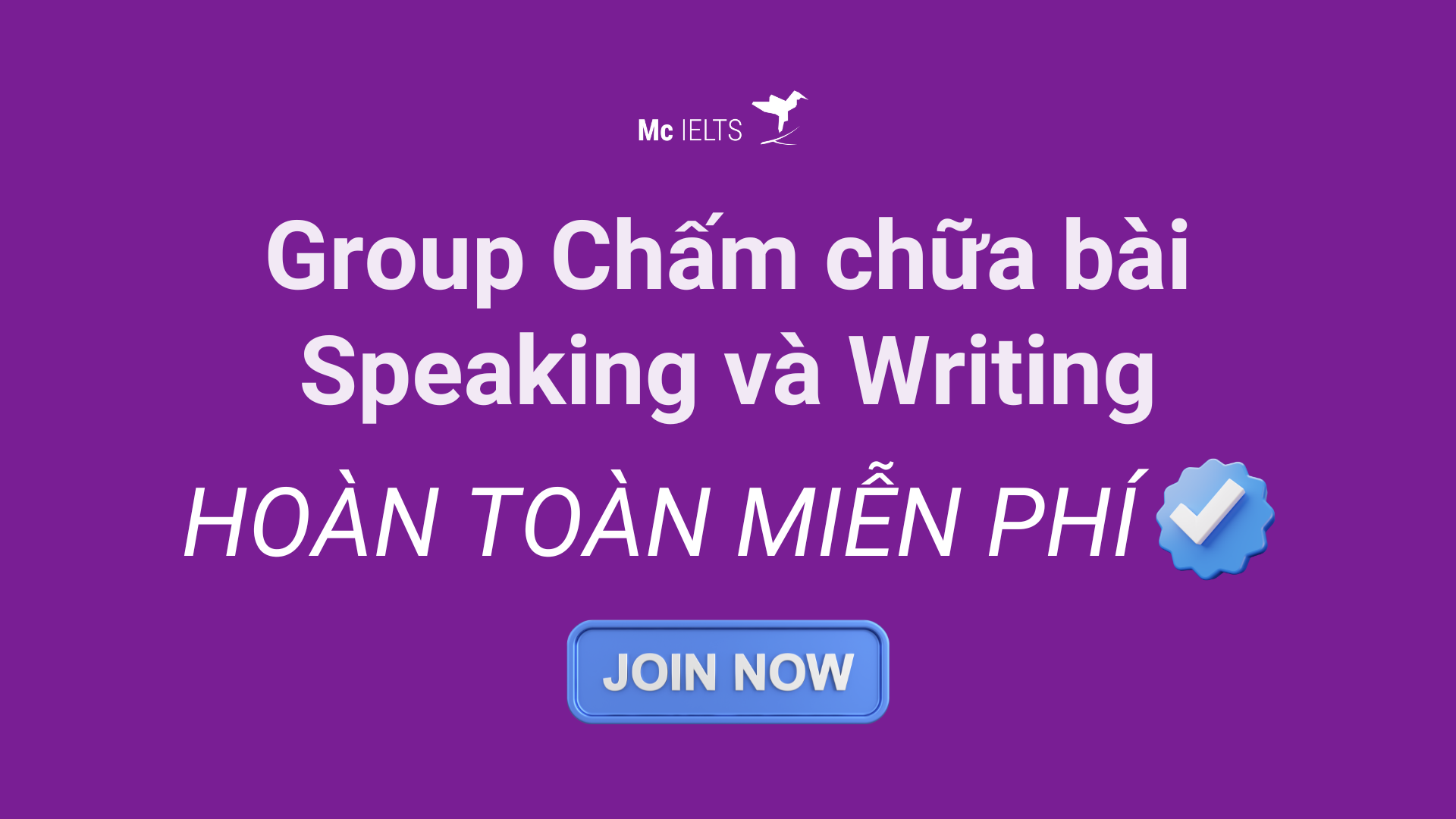
Tham gia nhóm Facebook của Mc IELTS để được cựu giám khảo chấm chữa bài Speaking và Writing hoàn toàn miễn phí
Hy vọng rằng những bài mẫu và gợi ý trong bài viết này đã giúp bạn có thêm ý tưởng và sự tự tin để ghi điểm cao chủ đề Advertisement IELTS Speaking Part 1, 2, và 3. Nếu bạn đang tìm kiếm các bước ôn luyện thi IELTS hiệu quả và muốn cải thiện kỹ năng nói của mình, hãy đến với Mc IELTS. Tại đây, bạn sẽ nhận được sự hướng dẫn tận tình từ các chuyên gia và những phương pháp học hiện đại, giúp bạn tự tin chinh phục mọi thử thách trong kỳ thi IELTS. Đừng bỏ lỡ cơ hội, hãy ĐĂNG KÝ NGAY và tiến gần hơn đến mục tiêu của mình!
Nhận lộ trình IELTS TỐI ƯU theo yêu cầu




